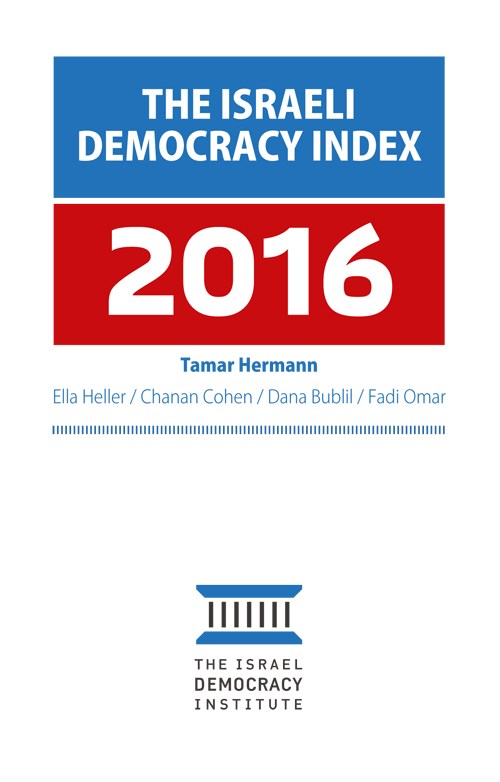

מאמרים, ספרים ואירועים בנושא Legislation
מאמרים
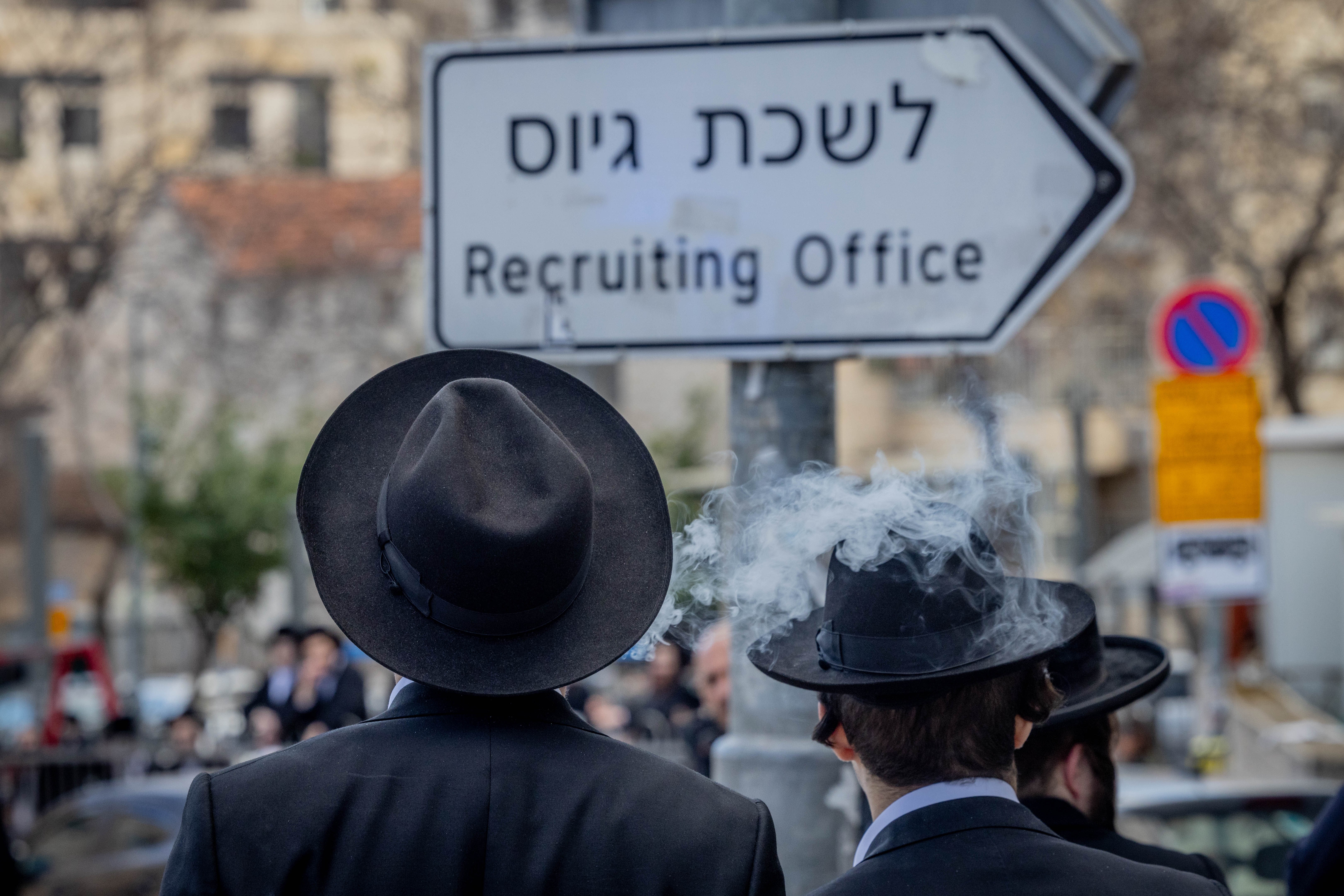
Response to the Government's Proposal for Haredi (non-) Conscription
Response to the Government's Proposal for Haredi (non-) Conscription by Yohanan Plesner, President of the Israel Democracy Institute, and Dr. Gilad Malach, Head of IDI's Ultra-Orthodox in Israel Program
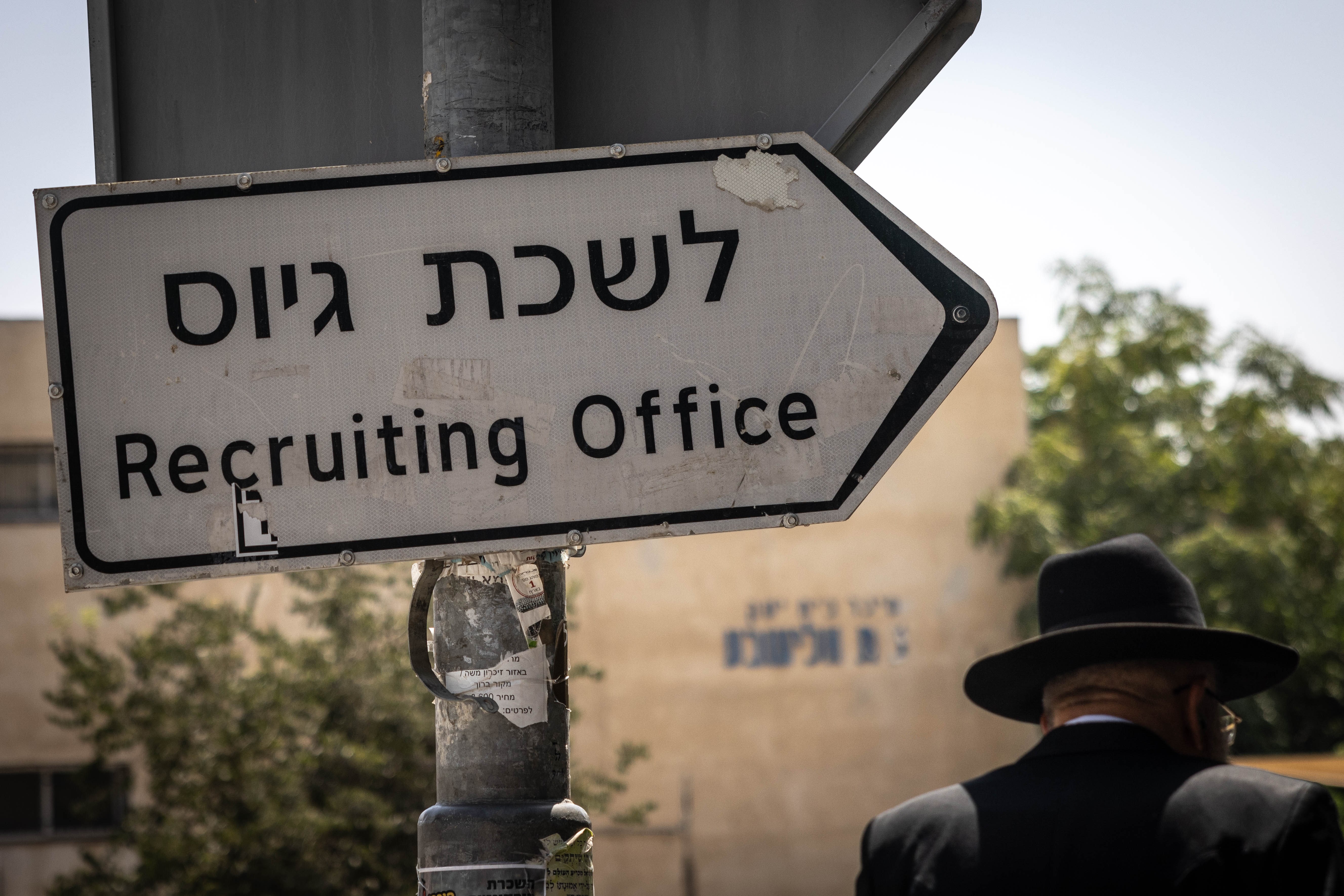
Military Service Law and Reserve Service Law Amendments (extension of mandatory and reserve service period): Professional Opinion
The government wishes to amend the Military Service Law and Reserve Service Law due to the new security circumstances arising from the outbreak of the war in Gaza. While recognizing the immediate imperative to respond to IDF's personnel needs, we oppose these legislative proposals.

Explainer: The Supreme Court hearing on (non) recruitment of ultra-Orthodox men and budgeting of yeshivas
What is the connection between the expiration of the conscription law and the budgets for yeshivas? What exactly was discussed in the Supreme Court and is the state in violation of the law? Bottom line, will the ultra-Orthodox be recruited, or not?
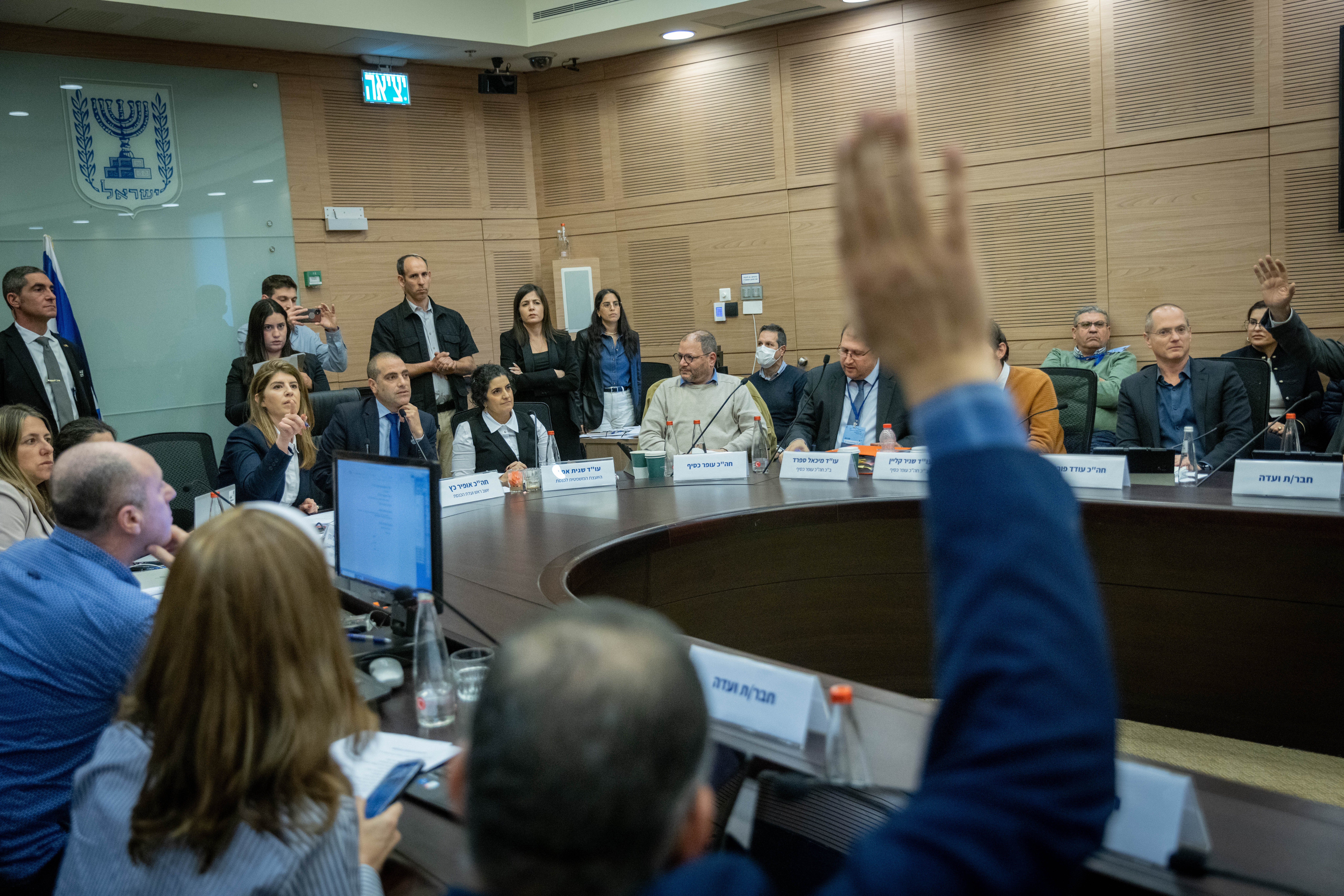
What is the “MK Expulsion Law?"
מאת: ד"ר עמיר פוקס
Since the Knesset passed Amendment 44 to regulate the possibility of impeaching MK's in 2016, no request has been made, making the case of MK Ofer Cassif unprecedented. An MK can be expelled if the Knesset finds that his or her actions constituted incitement to racism or support of an armed struggle against Israel.
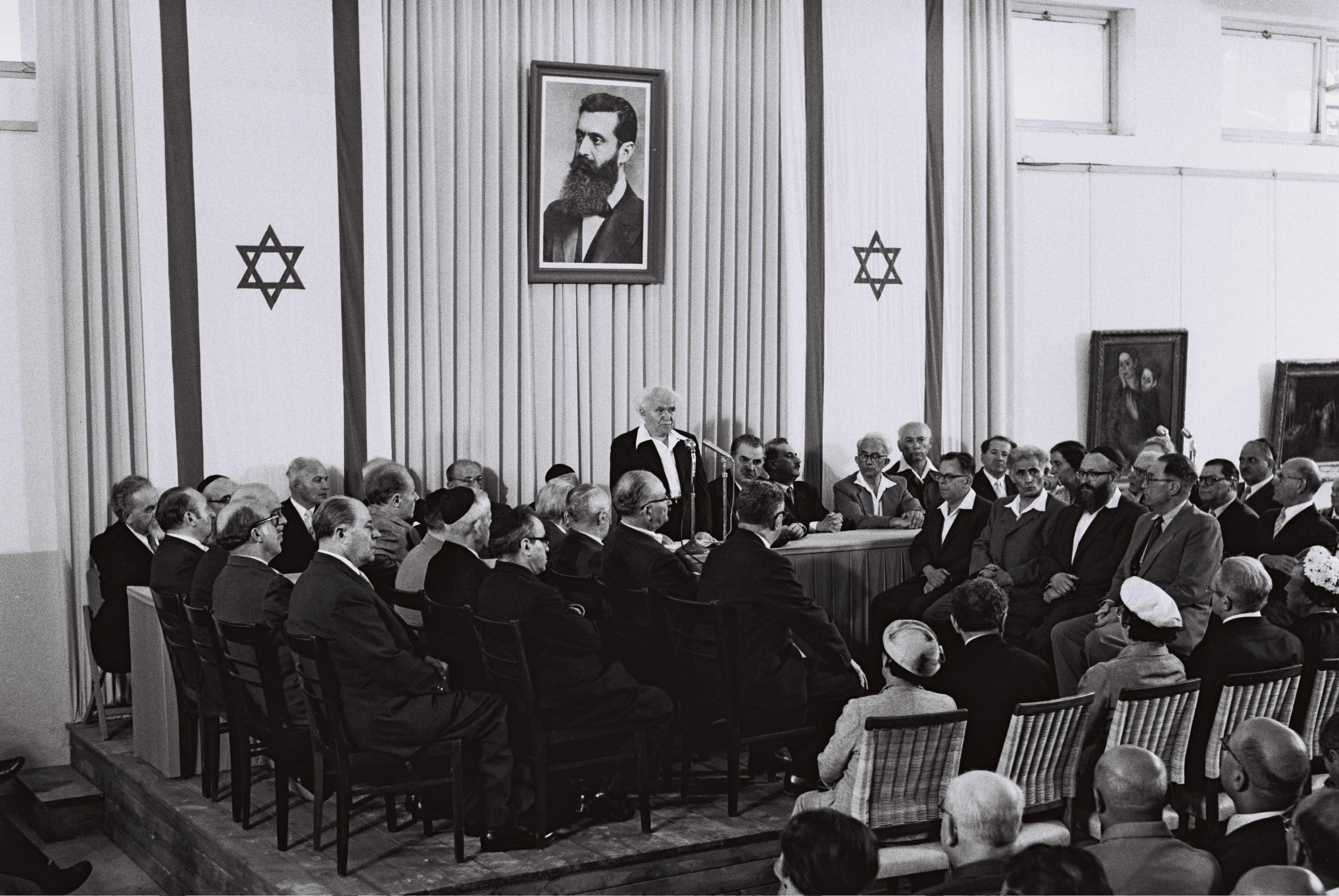
Can a unified Israel rise from the ashes of the Hamas war?
מאת: יוחנן פלסנר
While we entered this war more divided than ever – and with large numbers even saying that they believed civil war to be a possibility – Israelis today are united in their determination to win.
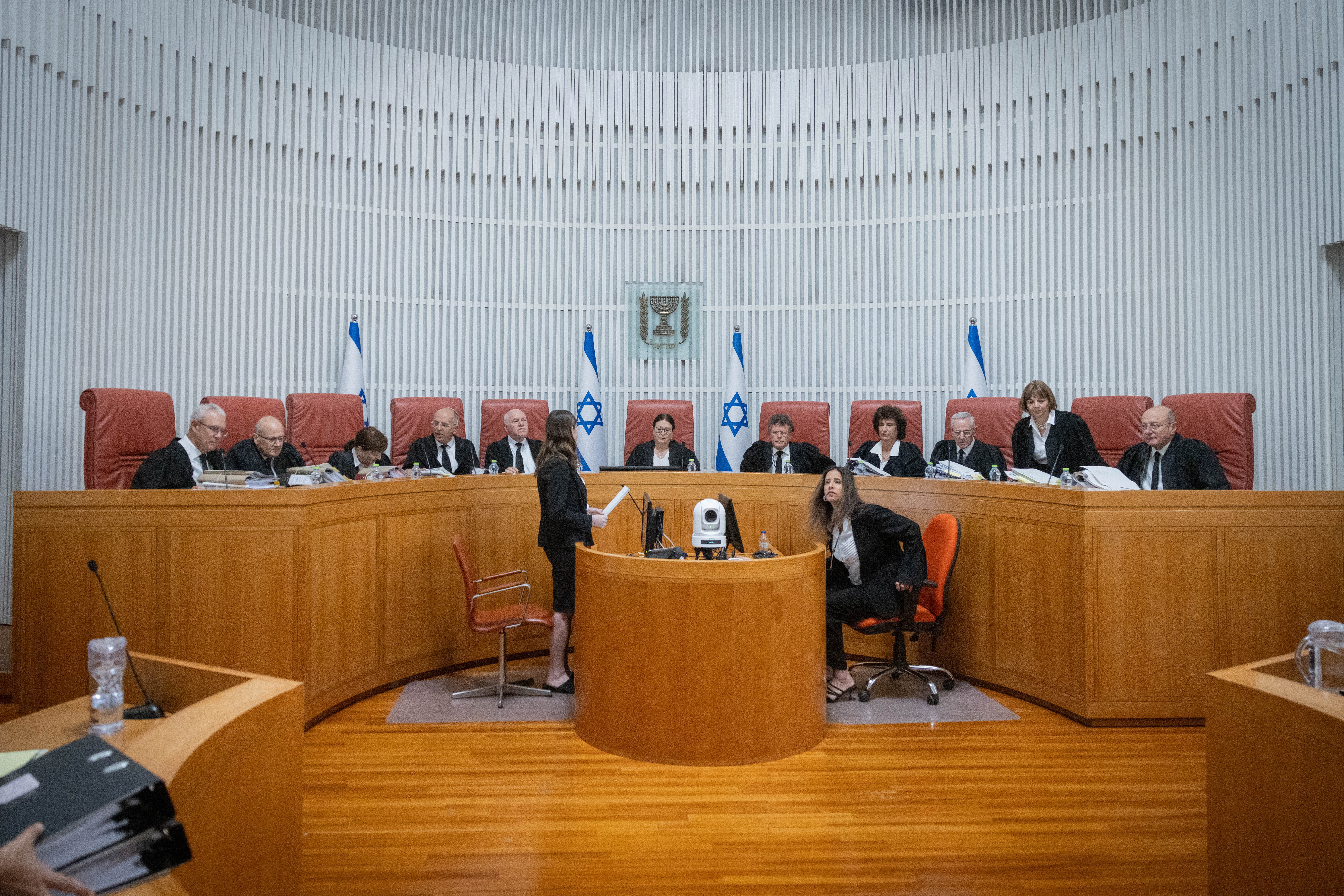
What Was the Supreme Court’s Ruling on the Revocation of the Reasonableness Doctrine? Eight Key Points
The Supreme Court's ruling to strike down the amendment made to the Basic Law: The Judiciary and reinstate the Standard of Reasonableness is a landmark decision on an issue that has been exceptionally divisive within Israeli society. Will this lead to a constitutional crisis? 8 Key points from IDI's experts examining the court's decision.
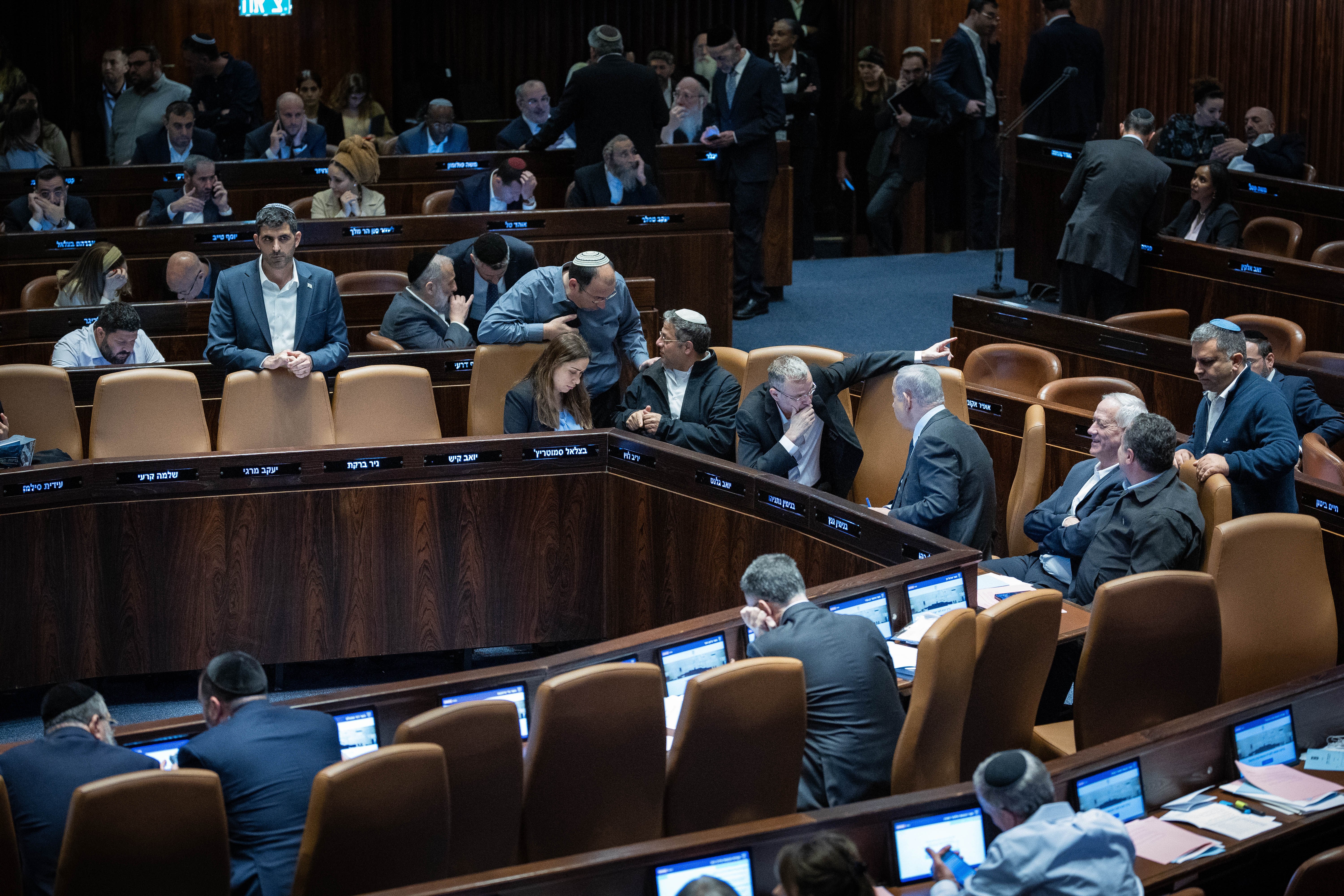
Coalition and Political Funds: Main Conclusions
מאת: פרופ' קרנית פלוג, Tzachi David
Coalition funds have been part of the budget-making progress for years. This study examines the trends in the use of these funds under the last three governments. One can see that the volume of coalition funds has grown up to fourfold within two Governments and that their breakdown has been less professional and more directed to interest groups.
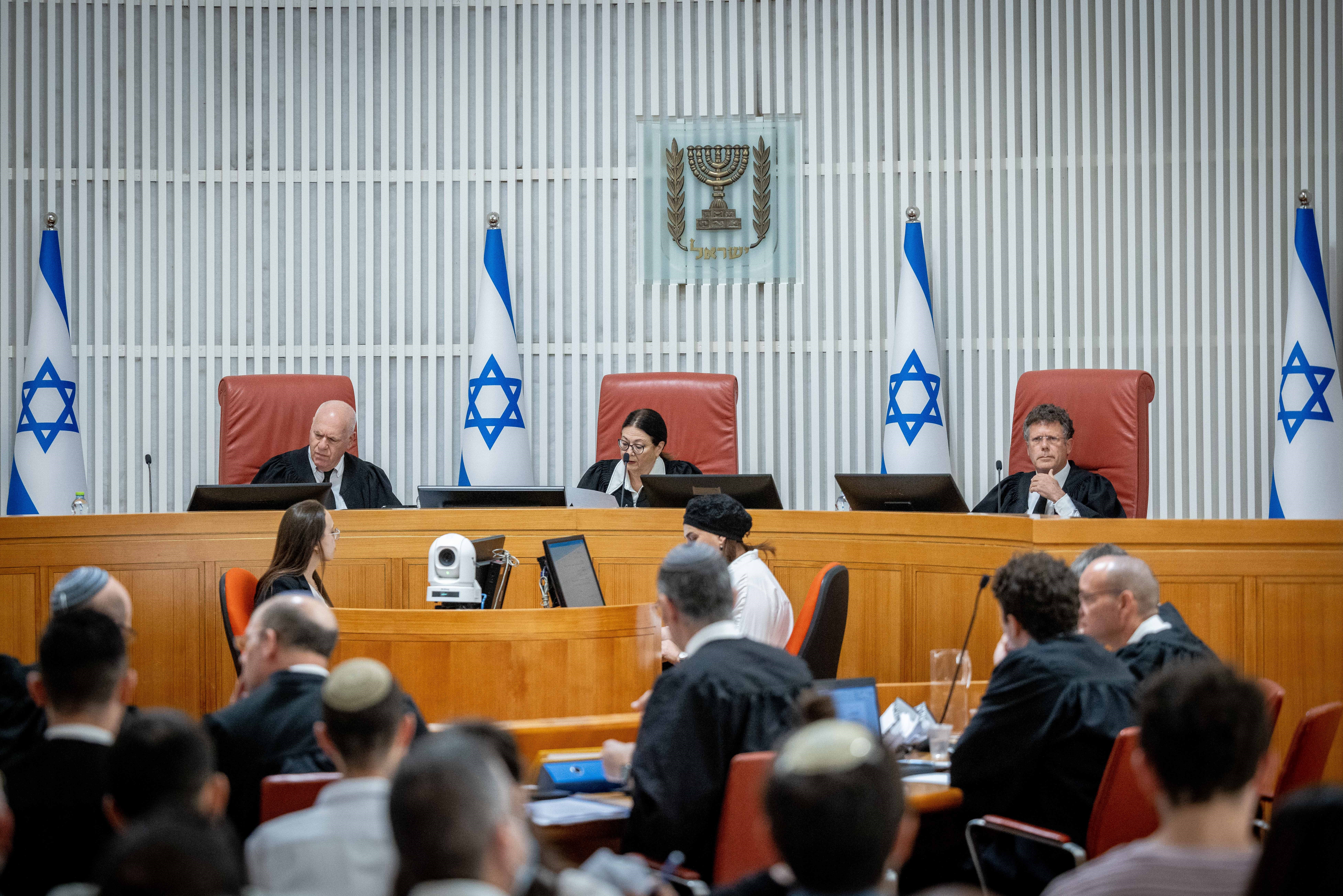
The Supreme Court Hearing on the Incapacitation Law
מאת: ד"ר עמיר פוקס
The Supreme Court hearing on September 28th, 2023 will focus on the question of whether the amendment should be interpreted as being valid only in the future, to remedy the perception of personal benefit for the current prime minister.
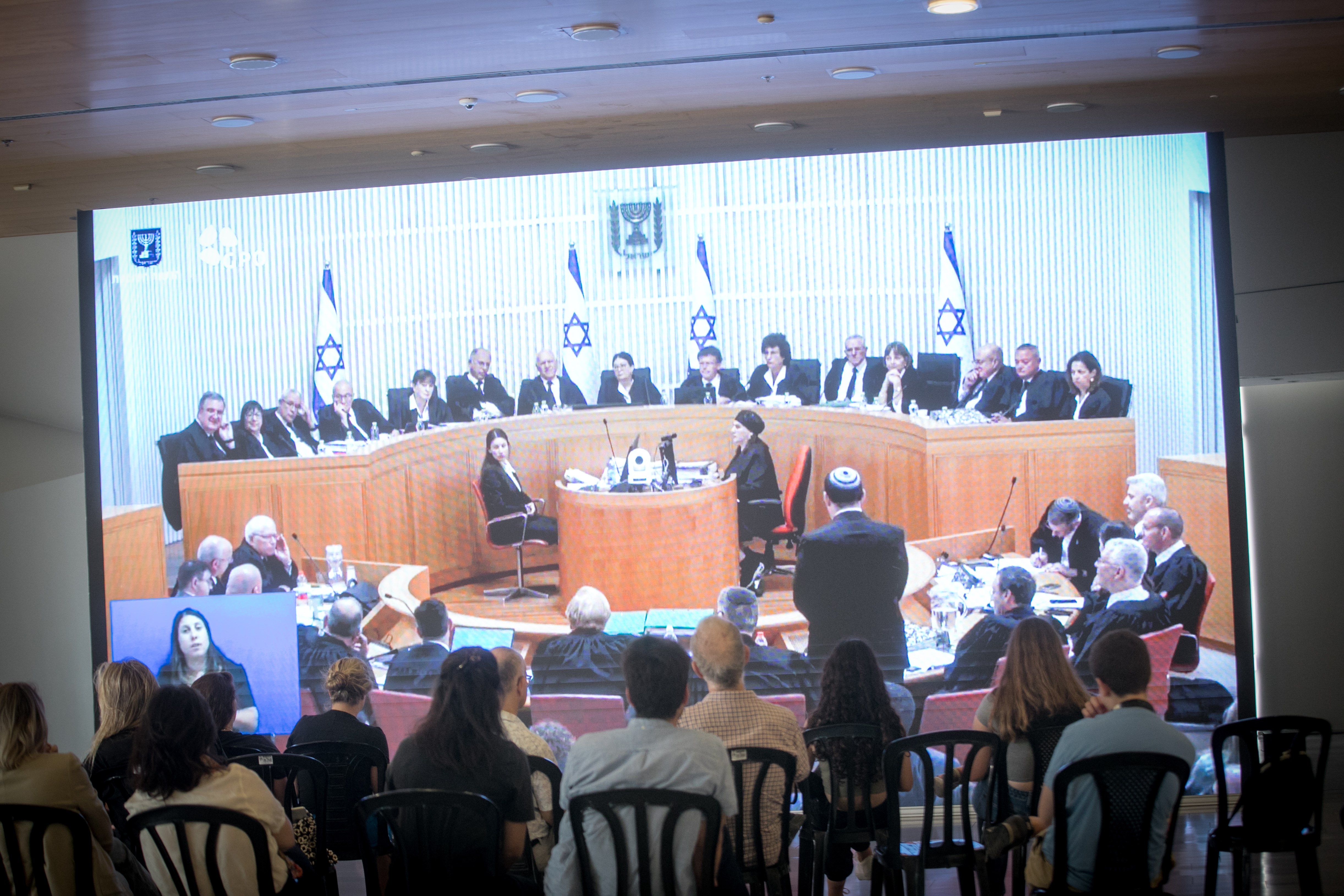
Three Big Cases in Israel's September to Remember
Three petitions before the Israeli Supreme Court are transforming the usually slow month of September into a pivotal one in Israel’s ongoing judicial crisis.

Explainer: Israeli Broadcast Regulation Reforms
Minister of Communications Shlomo Karhi has proposed reforms to Israel's broadcast system. The components of the reforms, alongside the context in which they are being proposed, make clear that their objective is a politicization and government control of regulatory bodies.
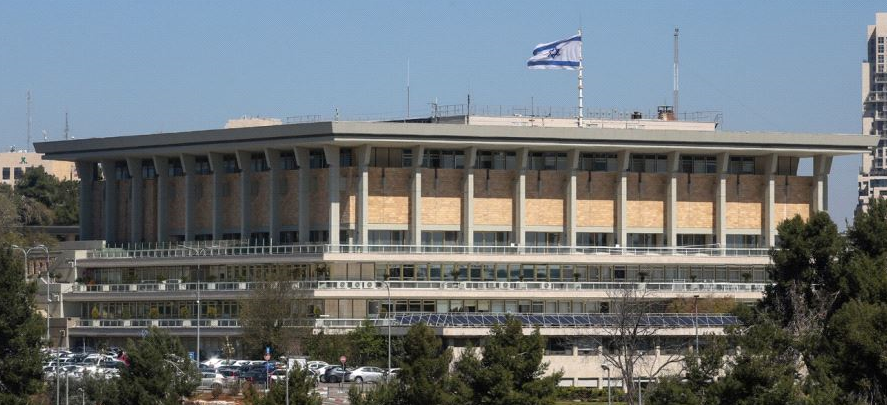
The Frequent Changes to Israel’s Basic Laws
מאת: ד"ר עמיר פוקס
All too often the Knesset amends Israel's Basic Laws - how does this compare with other parliamentary democracies?

Karhi’s Broadcast Legislation – Reform or Ruination?
The broadcast system in Israel certainly needs to be reformed in various ways, but Communications Minister Karhi's proposals all include a political twist that transform reform into ruination.
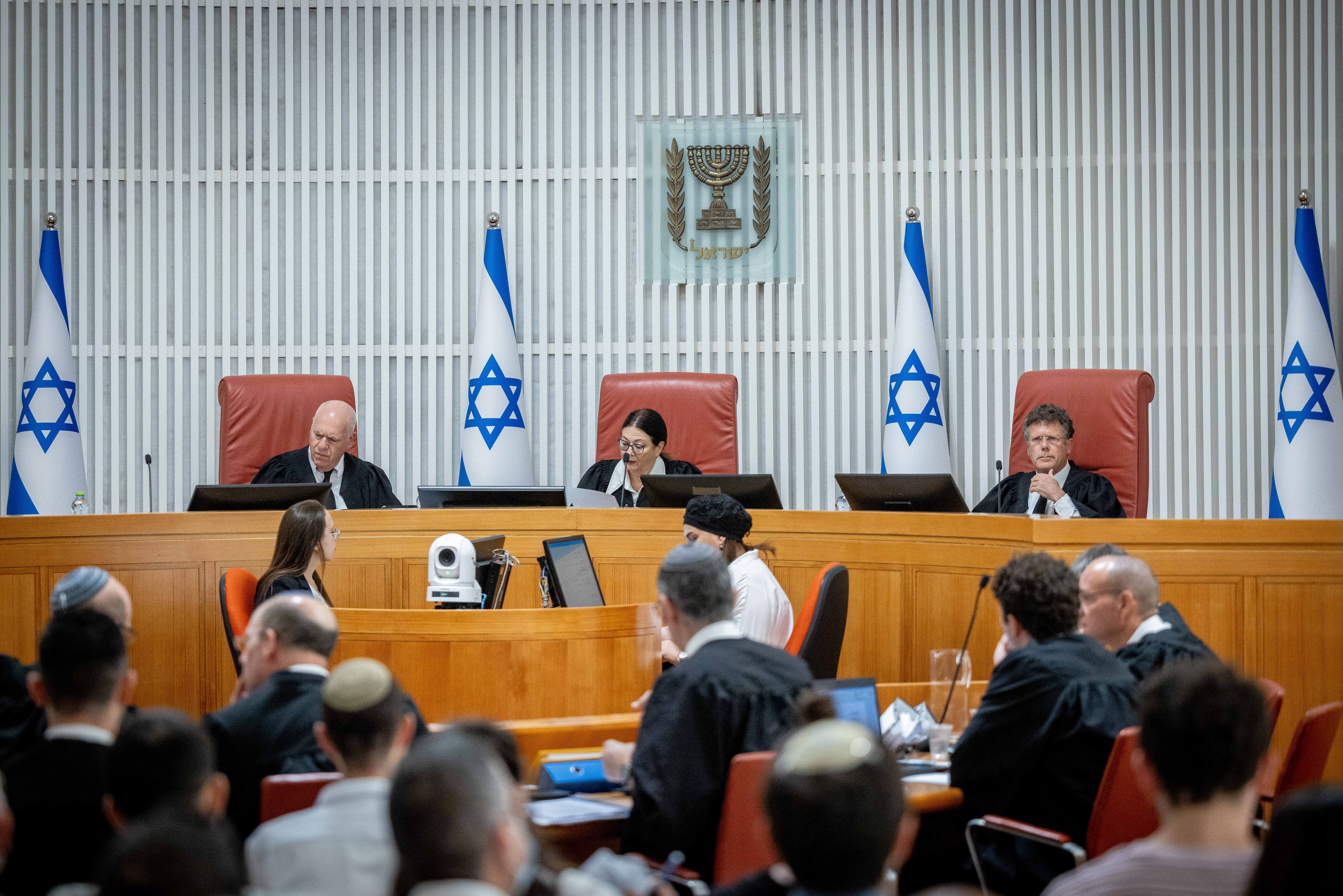
On the link between reasonableness and incapacitation
מאת: פרופ' סוזי נבות,
Less than 24 hours after the Knesset passed the “Reasonableness Law” the attorney general filed her professional opinion to the Supreme Court on an entirely different matter: the “Incapacitation Law.” What do the two amendments share in common?
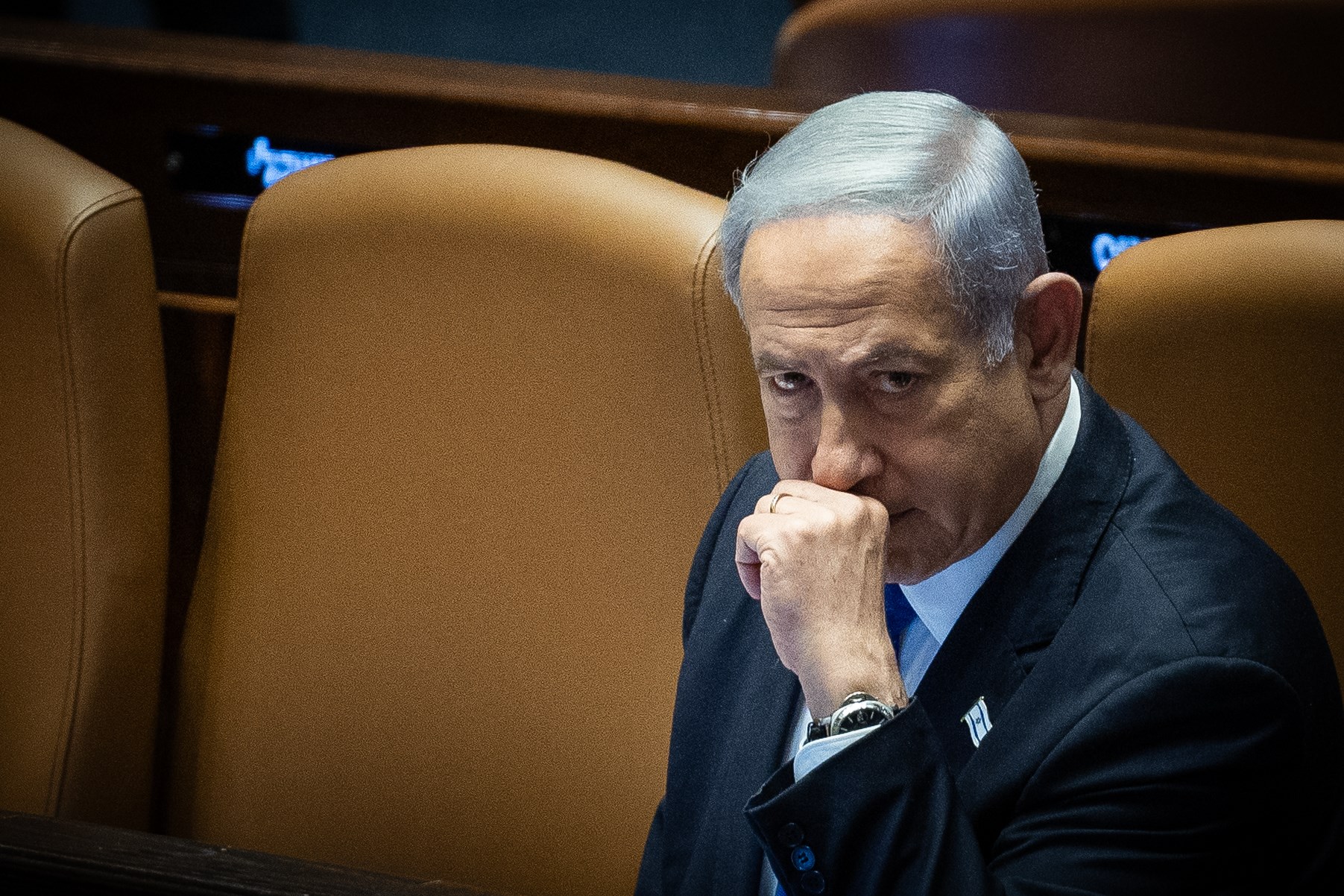
Explainer: Israel's High Court of Justice and the Incapacitation Law
מאת: ד"ר עמיר פוקס
The term "incapacitation" refers to a situation in which a government official is unable to perform their duty. The previous version of the law did not detail what constitutes incapacitation, nor who is authorized to declare incapacitation. The current version is accused of being personal and political.
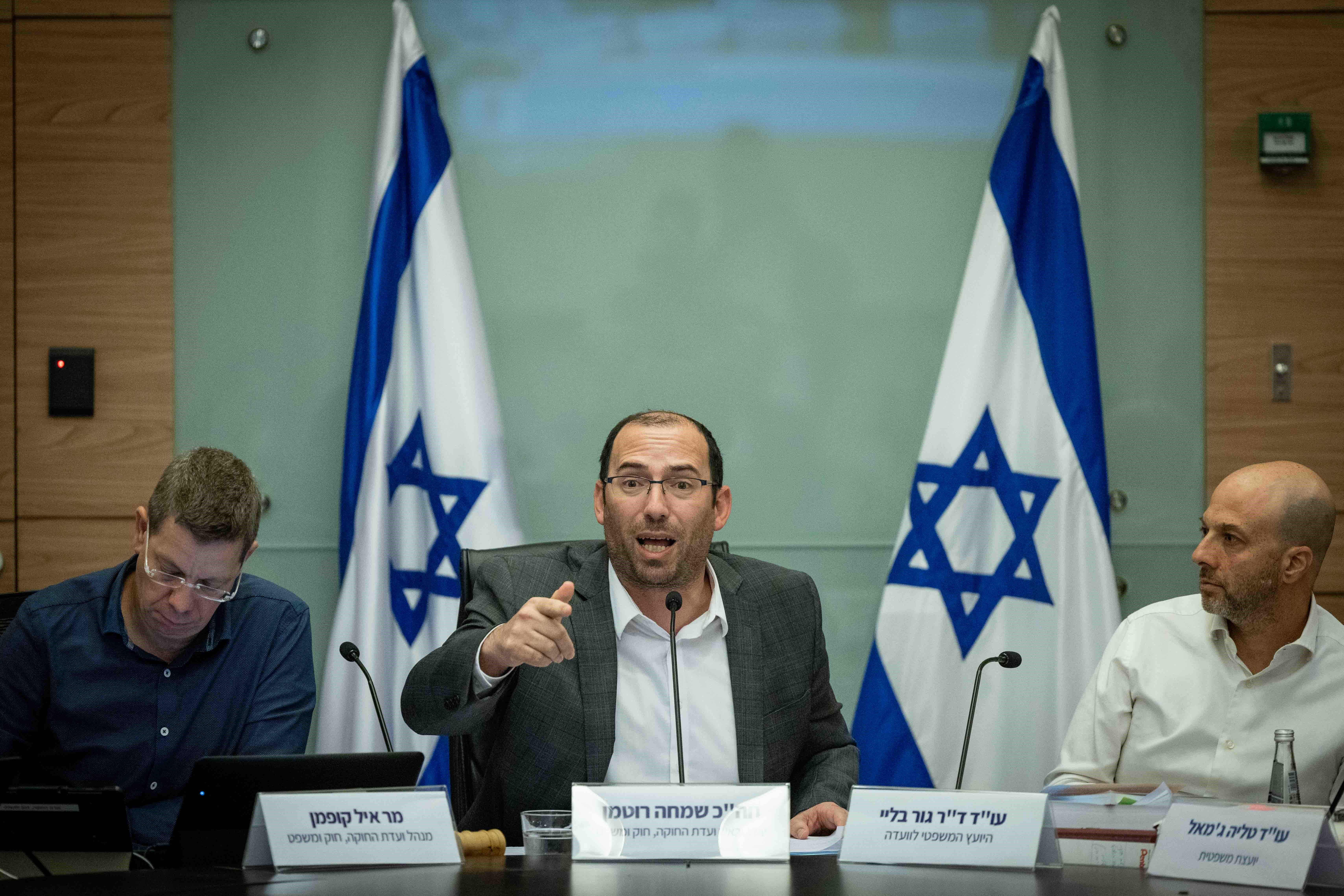
The Reasonableness Issue Requires Serious, Informed, and Consensual Discussion
מאת: פרופ' סוזי נבות
Only a government that wishes to make extremist and corrupt decisions would be afraid of the reasonableness test. While the test would certainly benefit from discussion of the framing of its boundaries and application, the legislation currently on the table hands the government unrestrained power.
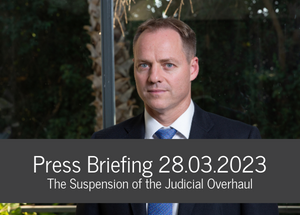
Briefing by IDI President Yohanan Plesner Following the Suspension of the Judicial Overhaul
Briefing by IDI President Yohanan Plesner Following the Suspension of the Judicial Overhaul.

Completing Israel’s Constitutional Process
IDI is currently in the process of composing a revised proposal for a full constitutional arrangement for the State of Israel as it marks 75 years of independence.
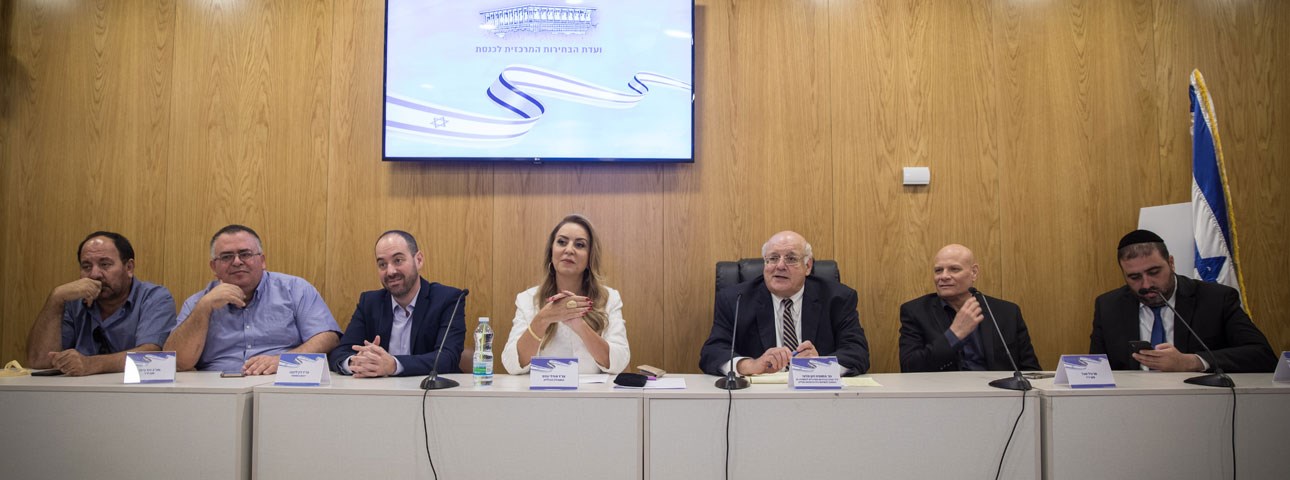
Disqualification of Knesset Lists and Candidates: Q&A
Disqualifying candidates and lists for the Knesset violates one of the most fundamental democratic rights, the right to vote and to be elected. Therefore, it must be done with the utmost care, judgment and objectivity. Who can reject candidates and lists for the Knesset, and on what is the criteria? IDI experts answer these questions.
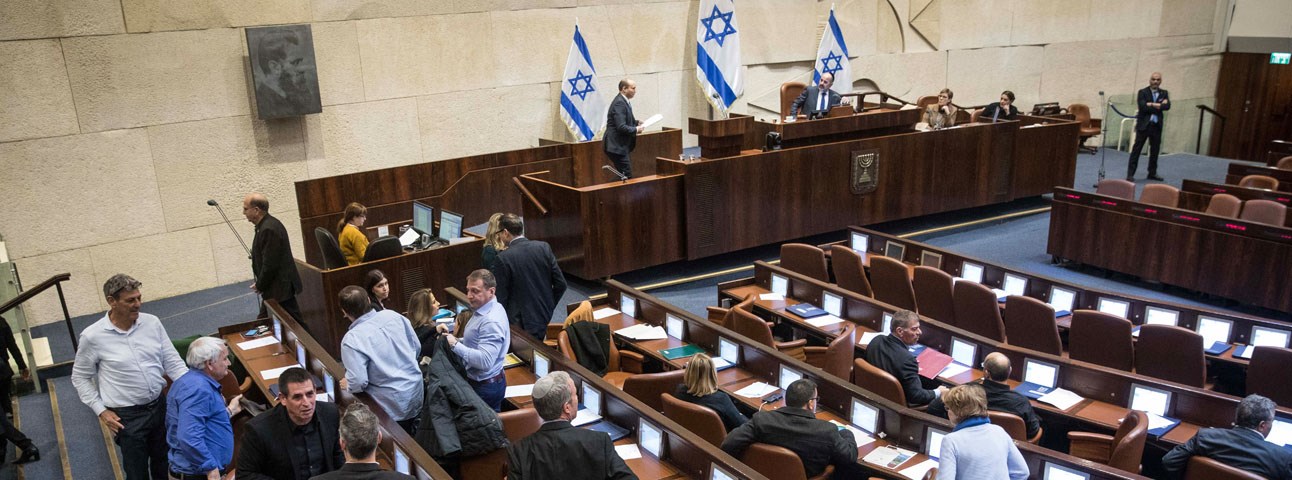
The 24th Knesset in Numbers
The 24th Knesset has dispersed, around a year and a quarter since it was sworn in. The most prominent finding in the following review is that this Knesset continued the trend set by its predecessor: Both saw a dramatic increase in the number of private members’ bills put forward, and a dramatic reduction in the proportion of such bills that passed a third reading and became laws.
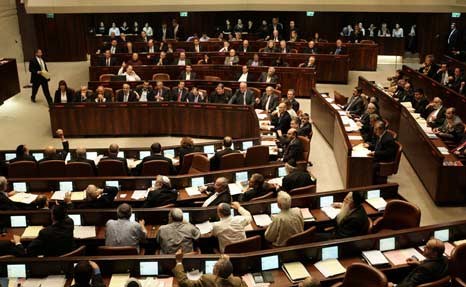
The Many Ways to Dissolve the Knesset 2022
מאת: ד"ר דנה בלאנדר
The unlikely coalition that survived thanks to the one vote has lost the parliamentary majority. Does this mean that the Knesset will disperse and new elections will be held? Dr. Dana Blander explains the different ways in which the Knesset can be dissolved and discusses the relationship between these mechanisms and government stability in a parliamentary system.
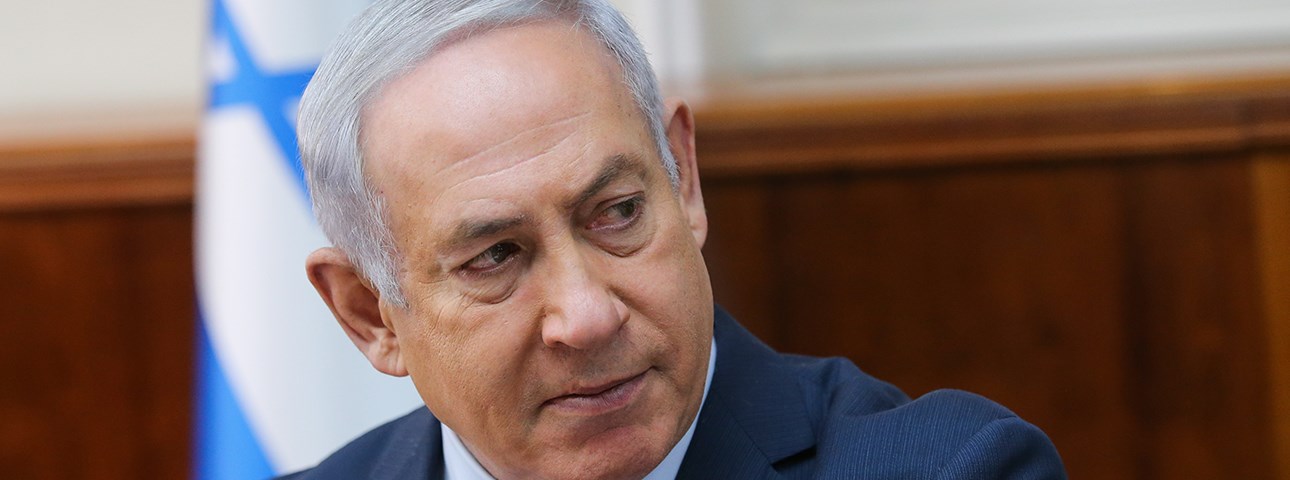
A Cooling-Off Period for a Prime Minister and Breakaway Knesset Factions: Qs and As
There are no provisions for limiting the tenure of prime ministers in parliamentary democracies such as Israel, and any new rules must be objective and not made to satisfy political needs
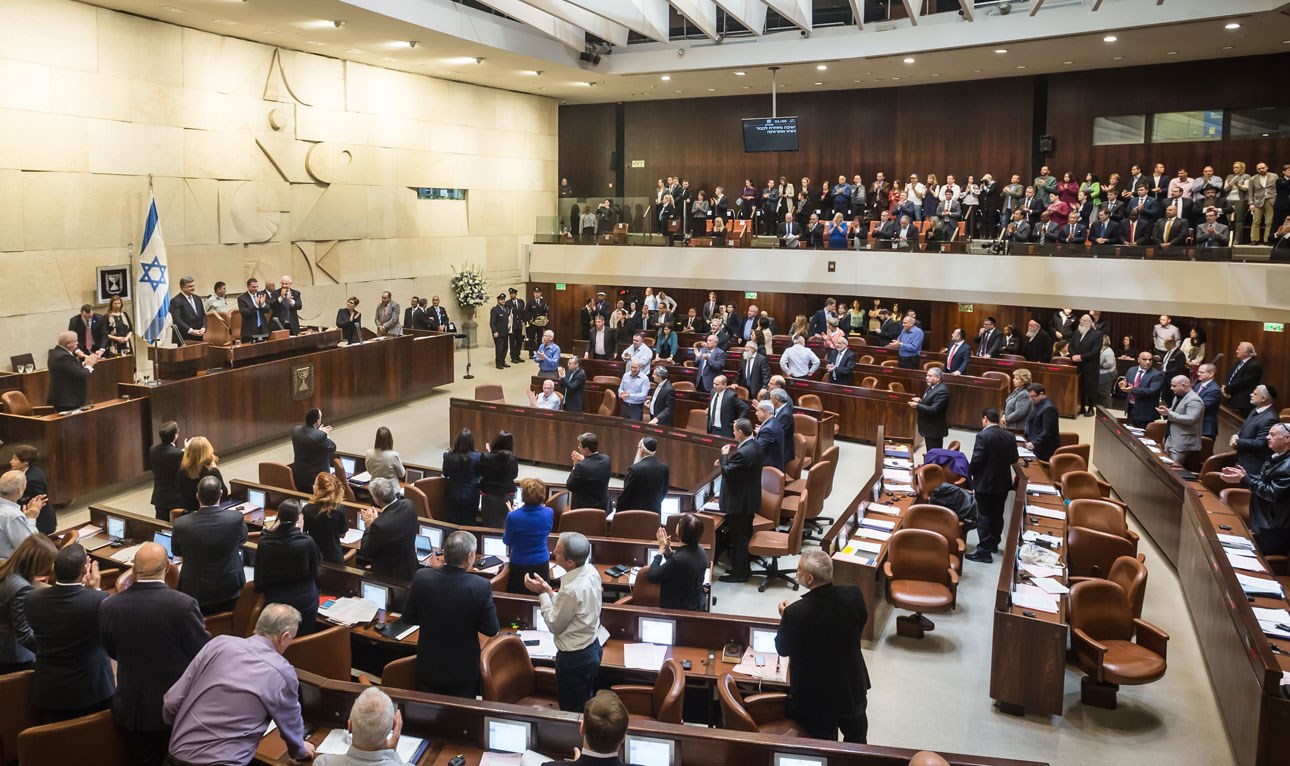
Two Knesset Bills Based on IDI Proposals Pass Preliminary Votes
Two bills based on the IDI research and policy proposals passed preliminary votes in the Knesset. The first anchors the right to equality in Israeli law and the second is a bill regulating digital election campaigns.
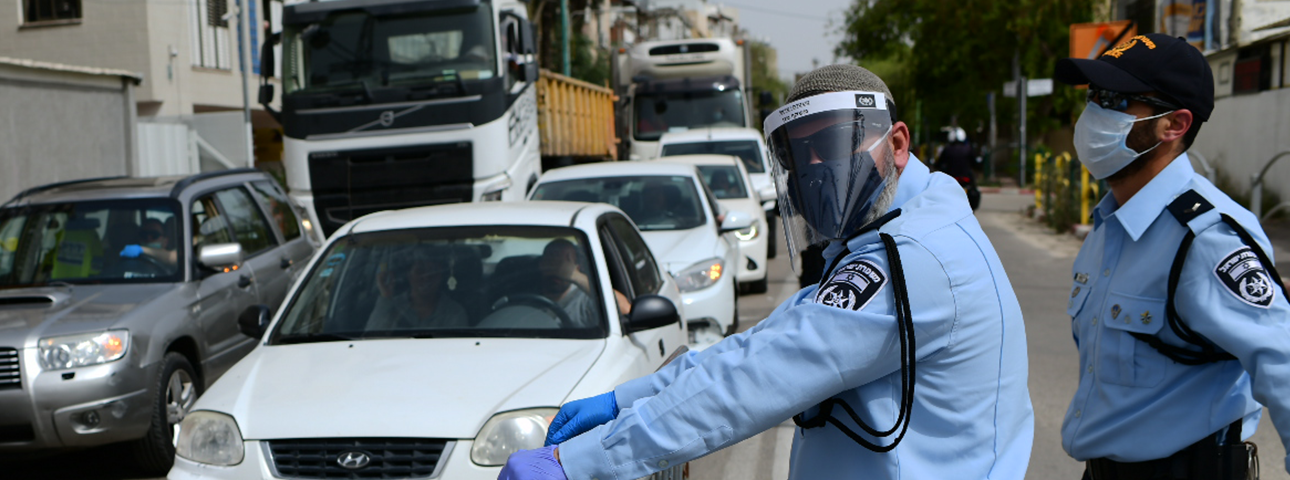
Coronavirus Bill - Professional Opinion Excerpts
The proposed bill, which is slated to replace the existing emergency regulations, limits Knesset oversight - the very reason this 'primary legislation' is so necessary
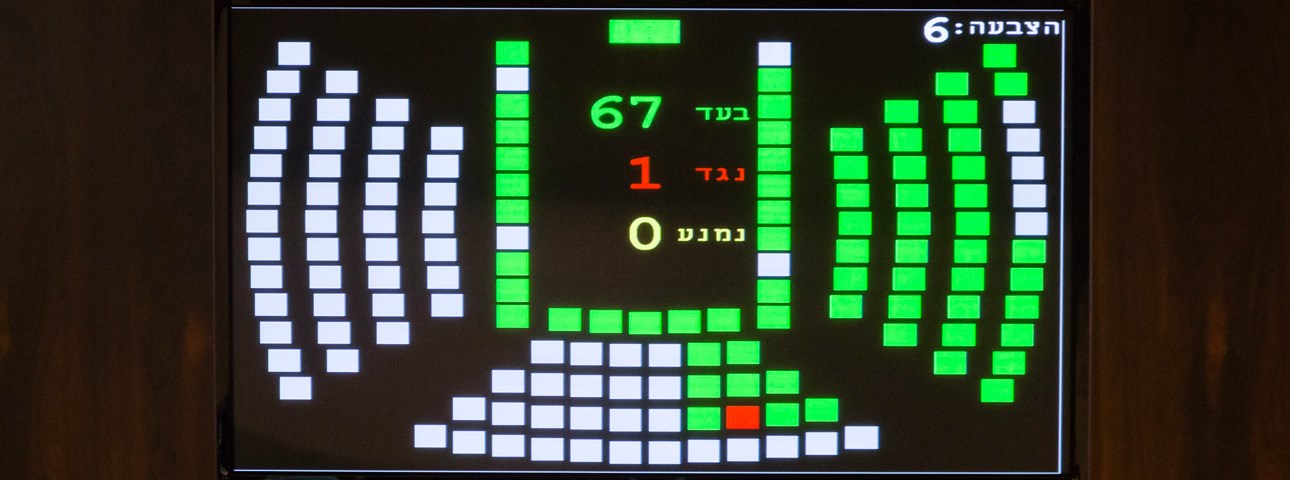
A Decade of Anti-Democratic Legislation
מאת: ד"ר עמיר פוקס
The last decade in Israel has been marked by a wave of legislation that has dealt a blow to the country’s democratic values, the rule of law, and separation of powers.
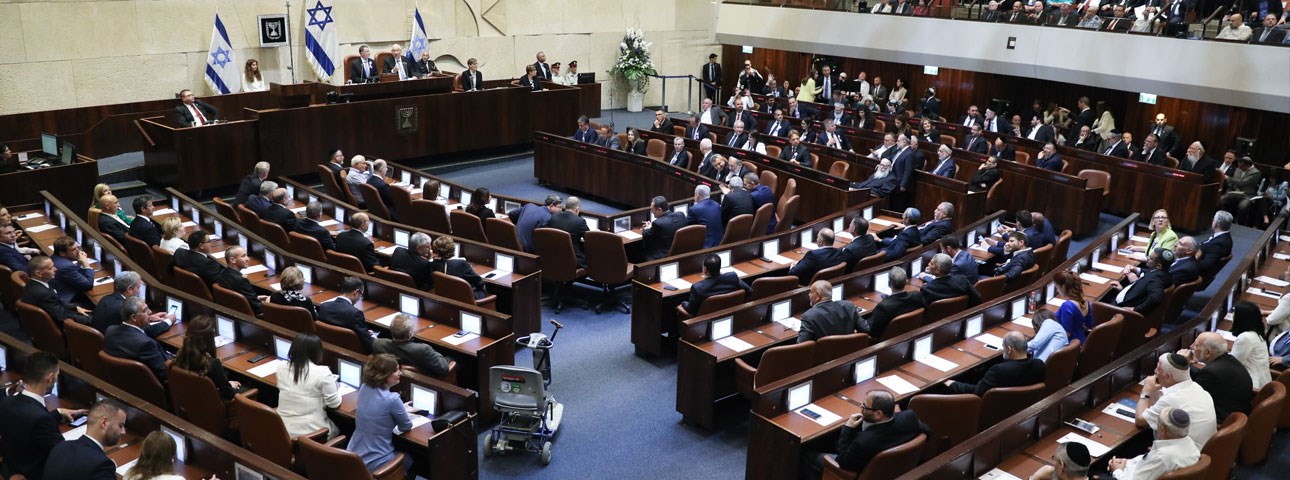
What will the new Knesset look like?
מאת: פרופ' עופר קניג
All in all, the human landscape of the Knesset continues a trend of an improved representation, which better reflects the heterogenous Israeli society. Still, several groups are still under-represented, mainly women, non-Jews, young adults and “Russians”.

Opinion: Repealing the Law to Dissolve the Knesset
מאת: פרופ' יובל שני, ד"ר עמיר פוקס, ד"ר גיא לוריא, פרופ' עופר קניג
An opinion submitted today (June 26th) to MKs, the Attorney General, and the Knesset Legal Advisor on behalf of the Israel Democracy Institute, opposes the proposal to repeal the law to dissolve the Knesset and seeks to take the proposal off the agenda.
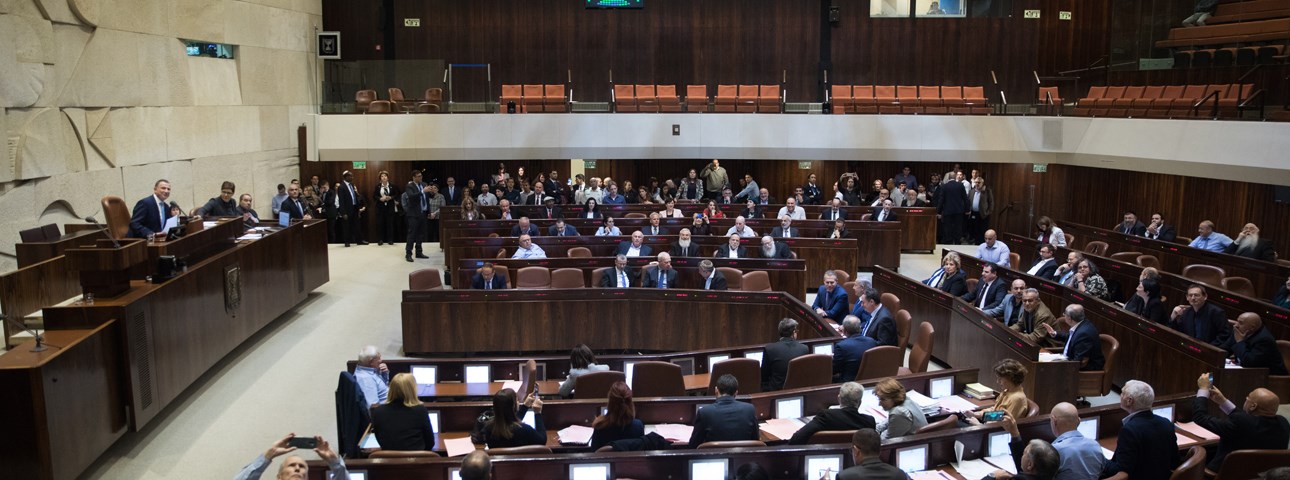
So Few MKs, So Much to Do: The Knesset is Dysfunctional
מאת: ד"ר חן פרידברג
Lawmakers sit on too many committees and propose too many laws. The fix starts with government members quitting the Knesset
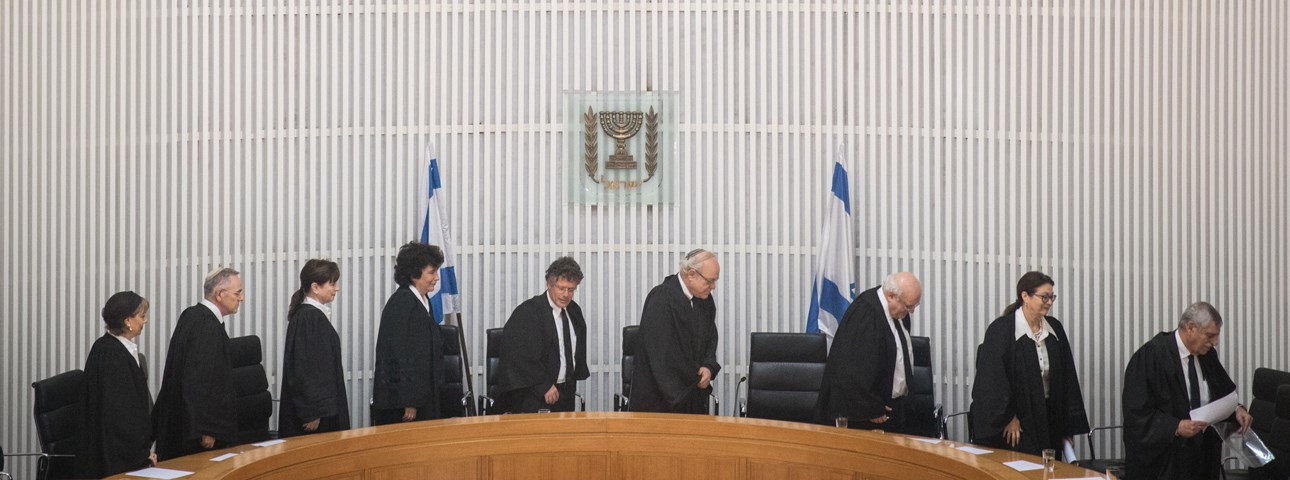
The Return of the Override Clause? A Dangerous and Unnecessary Step
מאת: פרופ' יובל שני
Laws define the legal rules of our democracy and ensure the stability of the political system while guaranteeing individual rights and general public interest - enactment of the Override Clause would seriously undermine this balance.
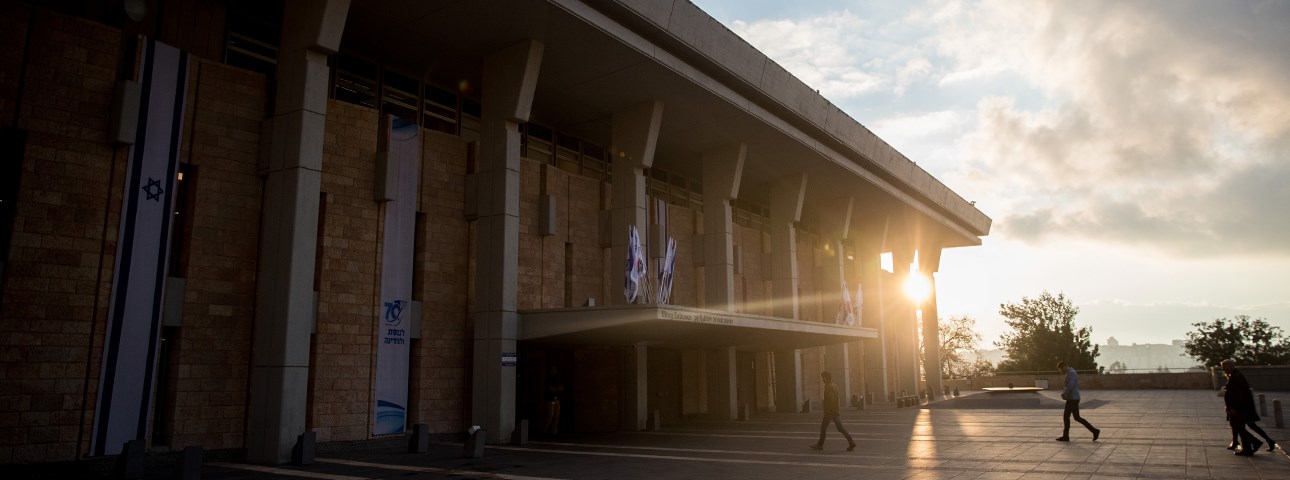
The 20th Knesset in Numbers
The current paper presents data on the parliamentary work of the MKs and parties in the outgoing Knesset. All the information is based on data taken from the Knesset archives and the Knesset’s Research and Information Center which are open to the public

Supporting the LGBTQ's Struggle for Equality
The Israel Democracy Institute’s management announced its support for the LGBTQ’s struggle to amend the newly passed Surrogacy Law so as to included gay couples.

Proposed Facebook Bill - Dangerous Legal Precedent
Proposed Facebook bill circumvents standard legal procedure and threatens to transform Israel into a world leader in repression of free speech

The Nation State Bill is a Constitutional Abandonment of Diaspora Jewry
מאת: ד"ר שוקי פרידמן
This bill is superfluous and will do far more harm than good. In its newly revised version, the Nation-State Bill, which has been problematic since its inception, reaches new lows by effectively abandoning Diaspora Jewry.

The Nation State Bill Bias
מאת: ד"ר עמיר פוקס
How can Israel - a light to the nations, and homeland for the Jewish People, fail to embrace equality for all, alongside commitment to the diaspora?
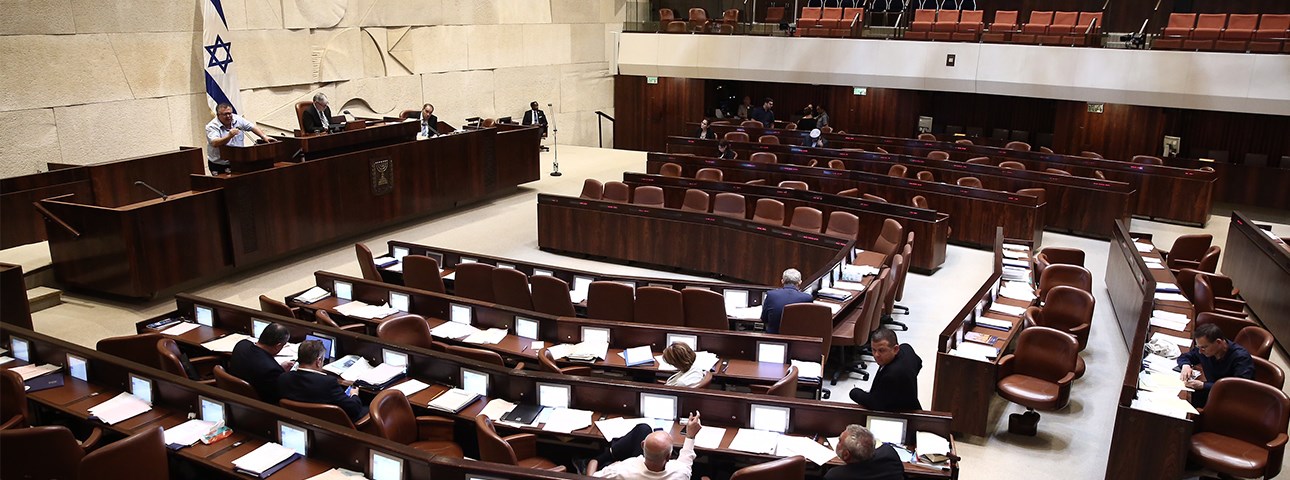
A Storm in a Teacup
Statesmanship or lack thereof has been in the background of a long list of scandals and incidents that have rocked Israeli politics in recent years

IDI Presents Outstanding Parliamentarian Award to MKs Elharar and Folkman
Knesset Speaker MK Yuli Edelstein: "It's time to bring the rules of the game back to the Knesset

Knesset Proposal to Impose Sanctions on Non-Attendance at Parliamentary Committee Meetings:
IDI scholar recommends adopting a proposed amendment to Basic Law: The Knesset, aimed at penalizing Knesset committee members who are invited to testify or submit information but do not comply.

Turning Back the Tide
מאת: יוחנן פלסנר
To tackle the crisis of democracy we must restore the public's faith in its governing institutions.

Ensuring a Vibrant Democracy
מאת: יוחנן פלסנר

Gotta Have Faith: The Knesset's Top Priority for 2017
מאת: יוחנן פלסנר
The Knesset’s top priority for 2017 should be to restore the Israeli public’s belief in its political institutions.

Is Israeli Society Frail Or Flourishing?
מאת: פרופ' ידידיה שטרן
Is Israeli democracy weak, fragile and on the brink of collapse, or is it robust, stable and resilient?

No Way to Run a Democracy
מאת: יוחנן פלסנר
IDI President Yohanan Plesner argues that electoral reform will not suffice to fix the short-term-ism that is destroying Israel's capacity for long-term planning and policy execution; reform of the internal processes of the parties themselves is required. This op-ed first appeared in the Jerusalem Report.

What Might Jabotinsky Say About the Actions of the 20th Knesset?
מאת: ד"ר עמיר פוקס
Some 76 years ago, on August 4, Ze'ev Jabotinsky, one of the most prominent Zionist thinkers and leaders, founder and head of the Revisionist movement, Betar youth group and the Irgun paramilitary organization, died prematurely. It is interesting to explore his views on matters related to democracy and liberalism.
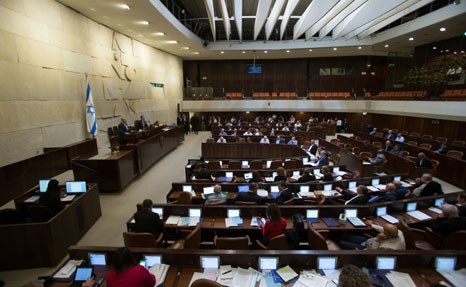
MK Suspension Bill: Anti-Democratic to the Core
מאת: ד"ר עמיר פוקס
Last week, the Knesset Law, Constitution and Justice Committee began deliberating over a proposal that would fundamentally alter the Basic Law – The Knesset: The MK Suspension Bill. If passed, the proposed bill would grant members of Knesset the power to remove another parliamentarian. This op-ed originally appeared in the Jerusalem Post.

The Cabinet in (com)Motion
May 14 marked the one-year anniversary of the fourth Netanyahu government. According to IDI researcher Dr. Ofer Kenig, "it is safe to say this cabinet has broken a record for internal instability."

Standing Up for Democracy
מאת: פרופ' מרדכי קרמניצר
One of the most fundamental principles of democratic government is the delicate system of checks and balances that prevents the arbitrary exercise of power by the majority. Israel, the sole democracy in a dangerous and unstable neighborhood, has long been an exemplar of these checks and balances. We cannot allow Israel's democratic foundations to gradually erode. Israel’s survival and prosperity hinge, in the final analysis, on its democratic vitality.

Legislative Solutions in Israel and America: Comparing Apples to Oranges
מאת: ד"ר עמיר פוקס
The Knesset is currently considering a proposed amendment, sponsored by the Prime Minister, to Basic Law: The Knesset. It would allow a special majority of 90 Knesset members to suspend an MK for an unlimited period of time. In effect, this would be tantamount to an expulsion, with the suspended parliamentarian replaced by the next person on his or hers party’s candidates list. This article was first published by JNS.org.

Campaign Financing in Israel
מאת: ד"ר אסף שפירא
A discussion of the principal issues pertaining to campaign financing in Israel, written before the Knesset elections of 2015.

Israel's 34th Government: A Profile
מאת: פרופ' עופר קניג
On May 14, 2015, the 34th government of the State of Israel—the fourth Netanyahu cabinet—was sworn in. In this article, IDI Researcher Dr. Ofer Kenig presents an overview of the process of forming the government and the profile of its members.

Coalition Building: How Long Is Too Long?
מאת: פרופ' עופר קניג
How long is too long to form a coalition? Dr. Ofer Kenig looks at how long it takes to form a government in different parliamentary democracies.
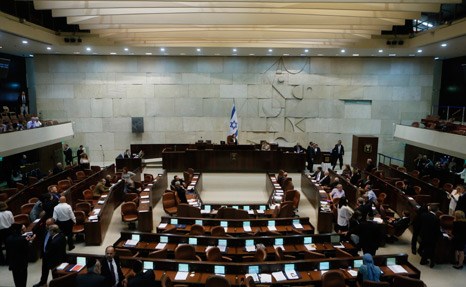
The 2015 Knesset: Can New Brooms Make a Clean Sweep?
מאת: ד"ר חן פרידברג
Israel's 20th Knesset will have 39 new members. Will this infusion of new blood improve the Knesset's performance? Dr. Chen Friedberg explores some of the issues that may impede the ability of these new Knesset members to "clean up" the Knesset.

The Social Composition of the 20th Knesset
מאת: פרופ' עופר קניג
On Tuesday March 30, 2015, the 120 members of the 20th Knesset will be sworn in. About one third of them are new faces, and almost a quarter are women. How many religious MKs are in the Knesset? Which is the "youngest" parliamentary group? Dr. Ofer Kenig explores the demographic attributes of the 120 members of Knesset.
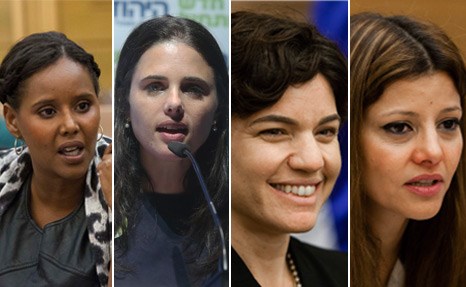
Women's Representation in the Knesset: Still Increasing But Not Fast Enough
מאת: פרופ' עופר קניג
Dr. Ofer Kenig analyzes the predicted rate of representation of women in the 20th Knesset as compared to previous Knessets and as compared to the rate of women's representation in the parliaments of other democracies.

The Elephant in the Room: Relations between Religion and State in Israel
מאת: פרופ' ידידיה שטרן
Prof. Yedidia Stern urges Israel's leaders to stop tiptoeing around the core issues of religion and state in the Knesset election campaign, and to take a clear position on the matter.

Israel's Central Elections Committee: Political Cabal or Independent Agency?
מאת: ד"ר דנה בלאנדר
IDI Researcher Dr. Dana Blander discusses the role of Israel's Central Election Committee and asserts that change is needed in its structure, composition, and working methods.

The Electoral Threshold, Wasted Votes, and Proportionality
מאת: פרופ' עופר קניג
In the upcoming elections, the electoral threshold will be 3.25%, a big leap from the last elections. Will this higher hurdle deter voters from supporting small parties? Will it reduce the share of wasted votes? What impact will it have on the proportional nature of the electoral system?

Shemitat Kesafim: The Year of Escape from Debt
מאת: פרופ' בני פורת
Dr. Benny Porat discusses the precept of debt cancellation during the sabbatical year (Shemita) and proposes ways in which to update this practice to suit the economics of contemporary Israel and create a model society.

23 Knesset Seats is Not a Victory
מאת: Yehoshua Oz
In an op-ed in the Jerusalem Post, Yehoshua Oz, IDI's Director of International Communications, argues that pundits eager to crown a victor in the 2015 elections have lost sight of the fact that winning one-fifth of the Knesset seats is no victory.

How to Prevent the Recurrence of Early Knesset Elections
מאת: יוחנן פלסנר
IDI President Yohanan Plesner recommends a change of approach and some practical steps for changing the reality in which the Israeli public repeatedly goes to the polls to elect a new Knesset before the previous Knesset has finished its term.

The Firing of Ministers in Israel: A Historical Overview
מאת: פרופ' עופר קניג
The demise of the 19th Knesset was hastened by Prime Minister Benjamin Netanyahu's firing of Finance Minister Yair Lapid and Justice Minister Tzipi Livni. In the article below, IDI researcher Dr. Ofer Kenig discusses the various grounds for firing ministers in the past and how the current case fits into Israeli political practice.
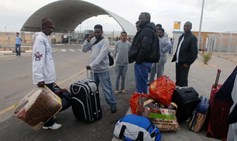
Detention of African Asylum Seekers in Israel: Welcome to Round Three
On December 8, 2014, just before the Knesset dissolved itself to prepare for early elections, it enacted the Law for Prevention of Infiltration and Ensuring the Departure of Infiltrators from Israel. IDI's Dr. Reuven (Ruvi) Ziegler reviews this development.

Democracy: The Key Election Issue
מאת: פרופ' מרדכי קרמניצר
In an op-ed in Maariv, IDI Vice President Prof. Mordechai Kremnitzer calls for an election campaign that focuses not only on foreign policy and Israel's social gap, but on the nature of Israeli identity and the value of Israeli democracy itself.
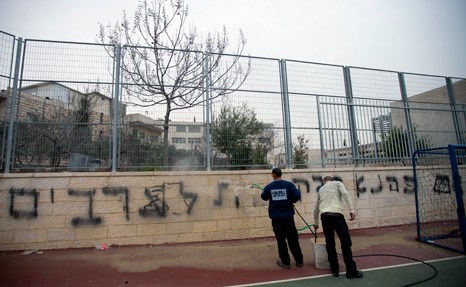
A Four-Step Plan to Combat Hatred between Jews and Arabs in Israel
מאת: יאיר שלג
IDI Research Fellow Yair Sheleg outlines four steps that can allay fears, contribute to dialogue, combat hatred, and improve relations between Jews and Arabs in Israel

Banning Arab Workers: A Hypocritical Condemnation
מאת: ד"ר עמיר פוקס
The mayor of Ashkelon's announcement following the massacre in a Har Nof synagogue that Arab workers would not be employed in his city was roundly condemned by members of the Knesset. Dr. Amir Fuchs points to the hypocrisy of these condemnations.

A Ready Alternative to the Nation State Law
מאת: ד"ר עמיר פוקס
IDI researcher Dr. Amir Fuchs criticizes the proposed Basic Law that would establish Israel as the nation state of the Jewish people and recommends accepting Israel's Declaration of Independence as the preamble to Israel's future Constitution instead.
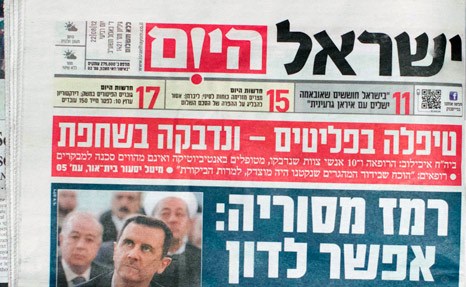
10 Reasons Why Even People Who are Appalled by Israel Hayom Should Oppose Legislation against It
מאת: Hanoch Marmari
Hanoch Marmari, former editor of Haaretz and current editor of The Seventh Eye, an independent on-line journal dedicated to critique of the media, defends <em>Israel Hayom</em>'s right to exist as a free newspaper, notwithstanding his professional qualms about the quality of its journalism.

Legal Opinion on the Israel Hayom Law
A summary of a legal opinion opposing the "Law for the Advancement and Protection of Print Journalism in Israel," which would prohibit the distribution of a full-sized daily newspaper in Israel free of charge.

Legal Opinion on the "Zoabi Bill"
A summary of a legal opinion on a proposed amendment to Basic Law: The Knesset that was submitted by Prof. Mordechai Kremnitzer and Dr. Amir Fuchs to the Ministerial Committee on Legislative Affairs.

Israeli Democracy Day: Yitzhak Rabin's Legacy for the Future
מאת: פרופ' ידידיה שטרן
On the 19th anniversary of the assassination of Yitzhak Rabin, Prof. Yedidia Stern asserts that if the annual memorial day for the late prime minister were to be observed as Israeli Democracy Day, Rabin's legacy for the future would be even greater.

Adviser or Prosecutor? Israel's Attorney General Can't be Both
מאת: פרופ' ידידיה שטרן
IDI Vice President Yedidia Stern asserts that there is a conflict of interest between the Attorney General’s two functions—as State Attorney and State Prosecutor—and the office must be split in two.
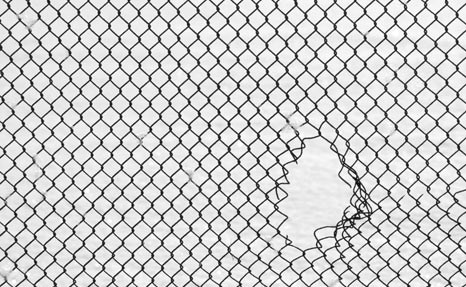
Overriding the Supreme Court: A Breach in the Wall of Democracy
מאת: ד"ר עמיר פוקס
Dr. Amir Fuchs discusses the proposal to add an override clause to Israel's Basic Law: Human Dignity and Freedom that would enable the Knesset to bypass the High Court and deal a a severe blow to the main safeguard of human rights and minorities in Israel.
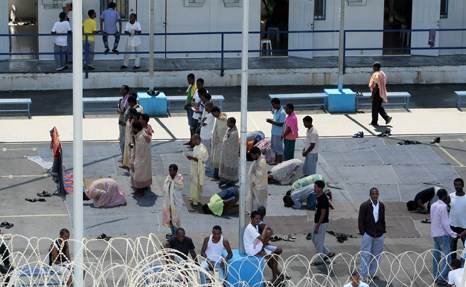
Second Strike and You Are (Finally) Out? The Quashing of the Prevention of Infiltration Law (Amendment No. 4)
IDI Researcher Dr. Reuven (Ruvi) Ziegler presents a brief overview of the Israeli High Court of Justice's decision to strike down Amendment No. 4 of the Prevention of Infiltration Law, and explores several themes that may be of comparative constitutional interest.

The Admissions Committees Ruling: A Lack of Ripeness or Refusal to Decide?
מאת: ד"ר עמיר פוקס
Dr. Amir Fuchs discusses the Israeli High Court of Justice's decision to uphold the "Admissions Committees Law," which allows small communities to reject applicants due to a lack of social suitability.
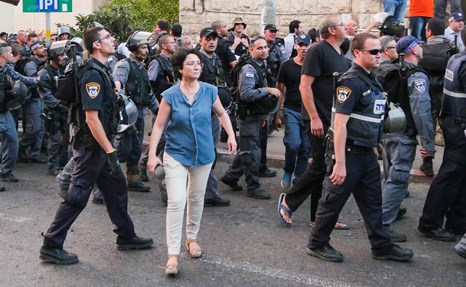
On the Punishment of MK Hanin Zoabi by the Knesset Ethics Committee
מאת: ד"ר אסף שפירא
IDI researcher Assaf Shapira provides background information on the decision of the Knesset Ethics Committee to suspend MK Hanin Zoabi for statements she made about the kidnapping and murder of three Jewish teenagers and about Operation Protective Edge.
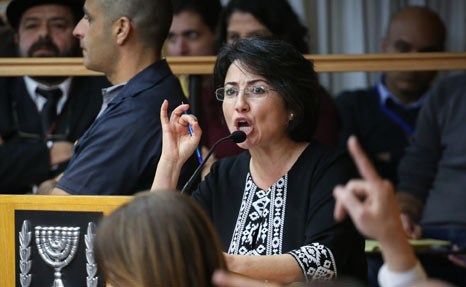
Heart vs. Head: The Case of Hanin Zoabi
מאת: פרופ' מרדכי קרמניצר,
Prof. Mordechai Kremnitzer and Admiral Ami Ayalon argue that while the heart has difficulty defending MK Hanin Zoabi's freedom of expression, the head demands that we object to the decision to remove her from parliamentary activity for six months.

A Red Alert for Israeli Democracy
מאת: יוחנן פלסנר
In the midst of Operation Protective Edge, IDI President Yohanan Plesner warns of the dangers of racism, incitement, and stifling of free speech and asserts that it is essential to internalize a substantive democratic culture.

Operation Protective Edge and International Law
מאת: יוחנן פלסנר, פרופ' מרדכי קרמניצר, פרופ' עמיחי כהן, עו"ד אלי בכר
As Operation Protective Edge enters its second week, IDI experts outline the legal basic concepts involved in asymmetrical warfare and the boundaries of permissible action according to standard interpretations of existing international law.

The Yisrael Beiteinu–Likud Split: Background and Consequences
מאת: ד"ר אסף שפירא
Following the announcement of the dissolution of the partnership between Yisrael Beiteinu and the Likud, IDI researcher Assaf Shapira explores the implications of Knesset faction splits.
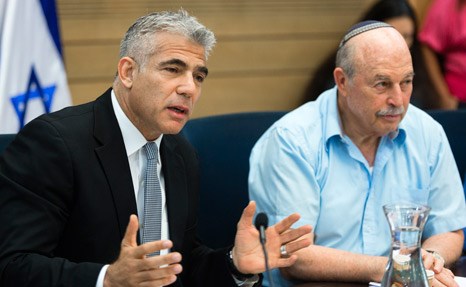
Zero Tax, Zero Logic
מאת: ד"ר עמיר פוקס
Attorney Amir Fuchs argues that the proposed legislation that would exempt first-time home-buyers from value added tax (VAT) violates the principle of equality for people who do not serve the State of Israel.

The "Anti-Pardon" Bill: Laws are not a Substitute for a Backbone
מאת: ד"ר עמיר פוקס
In an article in <em>The Times of Israel</em>, Attorney Amir Fuchs argues that legislation that would give judges the authority to sentence murderers to life in prison with no possibility of pardon is misguided and will not prevent terrorists from being released in future prisoner exchanges.
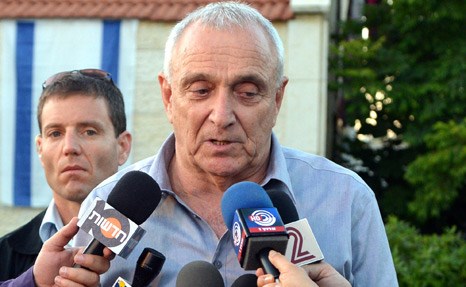
Thoughts on the Use of a Gag Order Following the Kidnapping
As Israel prays for the safe return of Gilad Shaar, Naftali Fraenkel, and Eyal Yifrach, Dr. Tehilla Shwartz Altshuler, head of IDI's Media Reform project, shares thoughts on the use of gag orders and military censorship in the digital age.
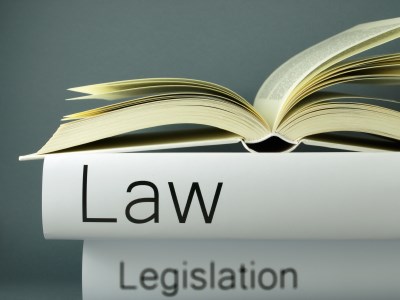
IDI Experts Submit Legal Opinion on Basic Law: Israel as the Nation State of the Jewish People
A legal opinion opposing the proposed Basic Law: Israel as the Nation State of the Jewish People, which was submitted by IDI Vice President Prof. Mordechai Kremnitzer and Attorney Amir Fuchs to the Ministerial Committee on Legislation on June 4, 2014.

The Presidential Elections: The Rules of the Game
מאת: פרופ' עופר קניג
Who elects the president? What are the candidacy requirements? What majority is needed to win the election and how is it obtained? Dr. Ofer Kenig explains some of the basics.
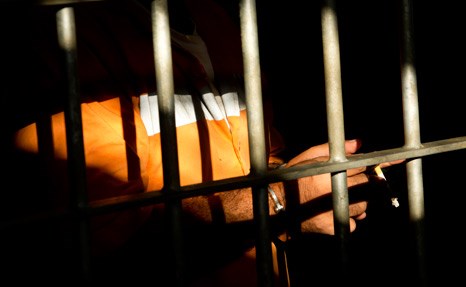
Force-Feeding Prisoners: A Serious Violation of Human Dignity
מאת: ד"ר עמיר פוקס
In an op-ed in <em>Maariv</em>, Attorney Amir Fuchs warns that force feeding hunger striking prisoners is a serious violation of human dignity, and should not be permitted in order to serve public relations efforts of the State of Israel.
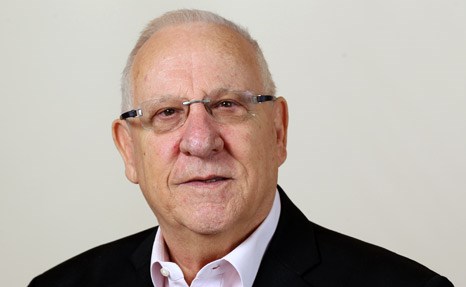
The Presidency: The “Additional Soul” of Israeli Democracy
מאת: Reuven Rivlin
Former Speaker of the Knesset MK Reuven (Ruby) Rivlin shares his views on the importance of the institution of the Israeli presidency, as part of an exclusive IDI series of articles by the presidential candidates of 2014.
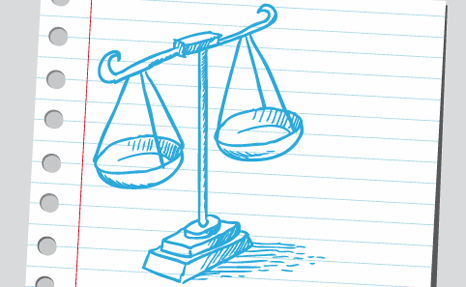
Basic Law: Israel as the Nation State of the Jewish People – A Danger to the Zionist Enterprise
In an article in the Hebrew weekly <em>Makor Rishon</em>, Prof. Mordechai Kremnitzer and Attorney Amir Fuchs argue against the current initiative to pass Basic Law: Israel as the Nation State of the Jewish People, which they see as divisive and problematic.

Price Tag Attacks: Racist Crimes
מאת: ד"ר עמיר פוקס
In an article in <em>Haaretz</em>, Attorney Amir Fuchs stresses the need to wage a genuine war against racism, in order to preserve the values of Zionism and safeguard the Jewish and democratic state.

Abolish the Presidency? Certainly Not This Way
מאת: פרופ' עופר קניג
Dr. Ofer Kenig responds to the initiative to abolish the presidency and emphasizes that such decisions require due consideration and cannot be taken as part of a capricious move that tramples on the democratic rules of the game.

The Leading Candidate for President: "I Don't Know"
מאת: חנן כהן
Two months before the elections for president of Israel, who does the Israeli public see as the most suitable candidate for the job? Find out in this mini-survey from IDI's Guttman Center.
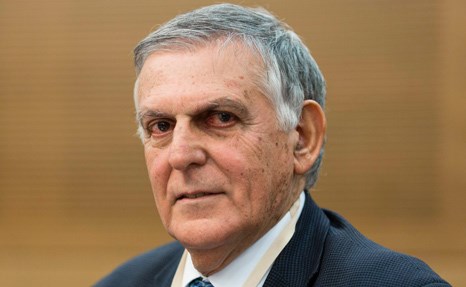
The Presidency in Israel as a Unique Challenge
מאת: Dan Shechtman
An article by Nobel Prize laureate Prof. Dan Shechtman, which was written as part of an IDI project in which the candidates for President of Israel share their views on the presidency and discuss what they would bring to the job.
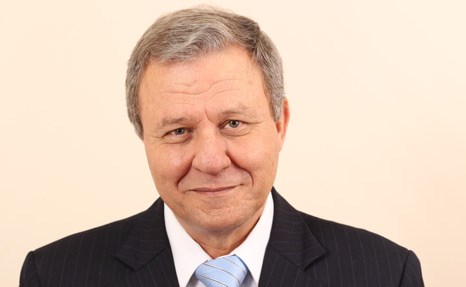
A Socially-Oriented President
מאת: Meir Sheetrit
MK Meir Sheetrit presents his views on the institution of the Israeli president and describes what he would bring to the job, in the first of a series of articles by the presidential candidates of 2014.

The Struggle against Government Corruption
מאת: פרופ' מרדכי קרמניצר
In an op-ed in <em>Haaretz</em>, Prof. Mordechai Kremnitzer discusses government corruption in Israel and the implications of the Holyland verdict for deterring such corruption in the future.

Nothing is Known Yet: Public Opinion on the Israeli Presidential Race
מאת: חנן כהן
Although the presidential race is heating up, the public does not seem to be particularly interested in it. What do Israeli citizens know about the race? Who is their candidate of choice? Find out in this mini-survey by the Guttman Center for Surveys.

Only a Constitution will Ensure Good Governance in Israel
מאת: ד"ר עמיר פוקס
IDI researcher Attorney Amir Fuchs asserts that the only way for Israel to ensure good governance is by adopting a constitution.

The Presidential Elections: A Political Race for a Ceremonial Position?
מאת: פרופ' עופר קניג
As Israel approaches the election of its 10th president, Dr. Ofer Kenig surveys the results of past presidential elections and asserts that although the role of the Israeli president is largely ceremonial, the race for the position is partisan and political.
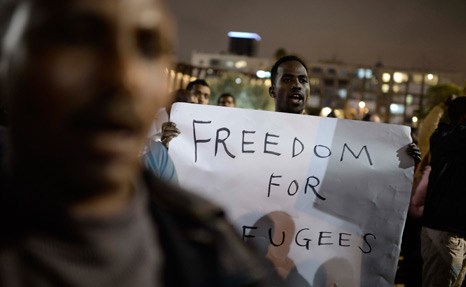
The Prevention of Infiltration Act in the Supreme Court: Round Two
IDI researcher Dr. Reuven (Ruvi) Ziegler explains why he believes the Supreme Court should overturn Amendment No. 4 of the Prevention of Infiltration Act just as it invalidated its predecessor.

Basic Law: Referendum—Changing the Rules of the Game of Israeli Democracy
מאת: ד"ר דנה בלאנדר
Dr. Dana Blander draws on the findings of Israeli public opinion polls and explores some of the ramifications of the new Basic Law: Referendum, a law that establishes a system in which every citizen is entitled to participate in historic decisions on withdrawal from territory.
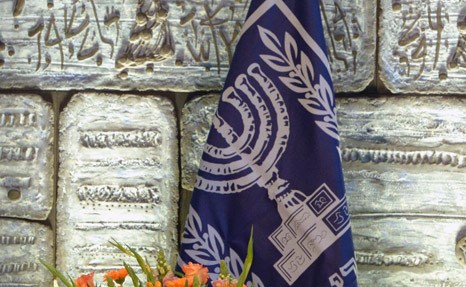
The Israeli Presidency: Unnecessary Institution or Vital Symbol?
מאת: ד"ר דנה בלאנדר
As the 2014 presidential election draws near, once again there have been calls to do away with the institution of the presidency. Is the President of Israel an unnecessary position or a vital symbol? IDI researcher Dr. Dana Blander analyzes the two sides of this question.
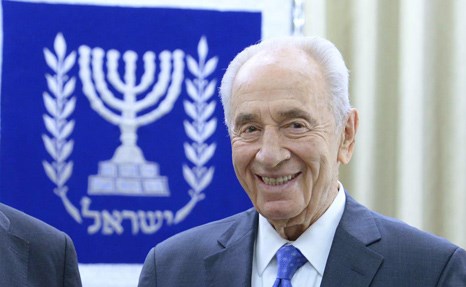
Israeli Public Opinion on the President and the Presidential Elections
מאת: אלה הלר
As the elections for the tenth President of Israel near, IDI researcher Ella Heller of the Guttman Center for Surveys presents an analysis of Israeli public opinion regarding the desired professional background for the next president of Israel, and how the elections should be conducted.
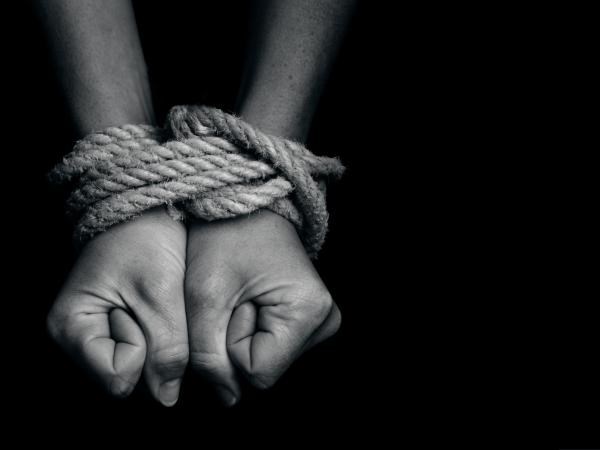
Who is Responsible for Finding a Solution to the Plight of Mesoravot Get?
מאת: פרופ' שחר ליפשיץ
Prof. Shahar Lifshitz outlines what halakhic authorities and the Knesset can do in order to resolve the issue of get refusal, as discussed at the Second Agunah Summit.

The Electoral Threshold: Why the Rush?
מאת: פרופ' עופר קניג
In an op-ed in the Jerusalem Post, Dr. Ofer Kenig warns that while there is nothing wrong with a moderate increase in Israel's electoral threshold, increasing it from 2% to 3.25% in a single step is problematic.

The IDF and the Ultra-Orthodox
מאת: ד"ר חיים זיכרמן
As the Knesset prepares to vote on the "Draft Law" designed to regulate the service of ultra-Orthodox men in the Israel Defense Forces, Dr. Haim Zicherman surveys the current situation within Israel's Haredi community.
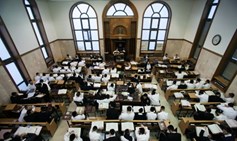
An Unequal Share of the Burden? The Truth about the Hesder Yeshivot
מאת: פרופ' בני פורת
Do students in the religious Zionist hesder yeshivot really contribute less to the IDF than other men who serve? IDI Researcher Dr. Benny Porat does the math and comes to an interesting conclusion.

Who Will Guard the Guards?
מאת: ד"ר חן פרידברג
IDI Researcher Dr. Chen Friedberg warns that the government's prolonged inability to appoint a permanent head of the Knesset Foreign Affairs and Defense Committee may be causing serious harm to the very foundations of Israeli democracy.

Who Needs a President Anyway?
מאת: פרופ' עופר קניג
In an op-ed in Makor Rishon, Dr. Ofer Kenig responds to calls to eliminate the institution of the presidency, and explains the value of the presidency in Israel and other parliamentary democracies.
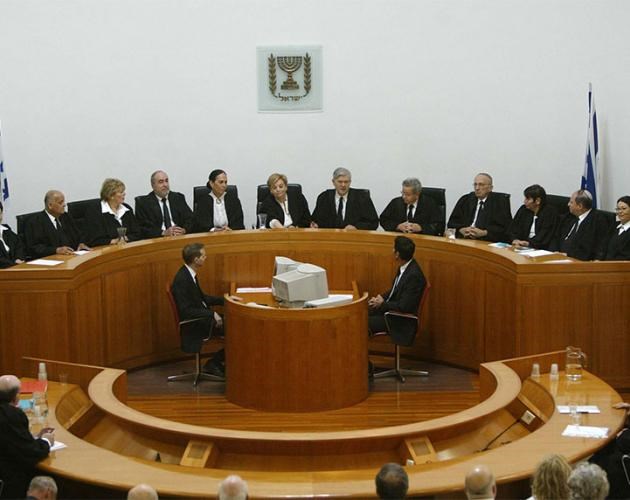
The Haredi Draft: Is the Shaked Committee's Bill Destined to be Overturned?
מאת: פרופ' ידידיה שטרן
As the Shaked Committee begins to vote on its proposal for the Haredi draft, Prof. Yedidia Z. Stern warns that the proposal's recommendation to exempt Haredi men of draft age during a three-year "adjustment period" is both inequitable and ineffective.

At the Starting Line: The Israeli Presidential Race Begins
מאת: פרופ' עופר קניג
Is Prof. Dan Shechtman, who formally announced his candidacy for the 2014 presidential race in Israel, any different than traditional candidates for the position? IDI researcher Dr. Ofer Kenig surveys the characteristics of Israel's past presidents and presidential candidates.

Civil Unions for All
מאת: פרופ' שחר ליפשיץ
Prof. Shahar Lifshitz explains why IDI's proposal for civil unions, which was first presented in his IDI policy paper The Spousal Registry, is the best solution possible today for alleviating the distress of couples who cannot or do not want to marry in a religious ceremony in Israel.
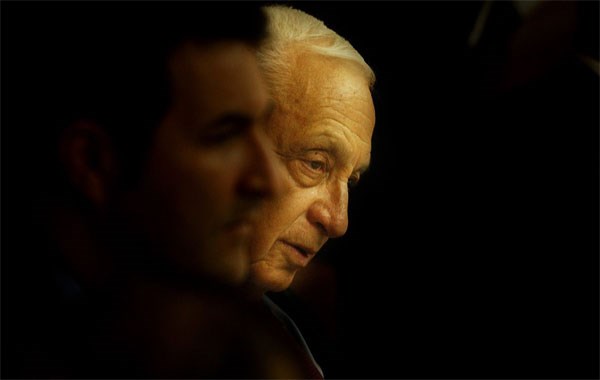
Remembering Ariel Sharon (1928–2014)
מאת: פרופ' עופר קניג
Dr. Ofer Kenig presents some of the milestones in the career of Ariel Sharon, the 11th Prime Minister of the State of Israel.

Releasing Terrorists: An Insult to the Criminal Justice System
מאת: ד"ר עמיר פוקס
In an article in <em>Haaretz</em>, attorney Amir Fuchs explains why he believes the release of convicted terrorists as part of prisoner release deals or as part of diplomatic negotiations degrades Israel's criminal justice system.

Human Rights under Attack
מאת: ד"ר עמיר פוקס
IDI Researcher Attorney Amir Fuchs discusses two indirect threats to human rights in Israel: attacks on the Israeli Supreme Court and attacks against Israeli human rights organizations.

The Referendum Law as a Metaphor
מאת: ד"ר אריק כרמון
In an op-ed originally published in Haaretz, IDI Former President and Founder Dr. Arye Carmon explains his reservations about the "Referendum Bill" and warns that the concept of referendum is antithetical to the principles of democracy.
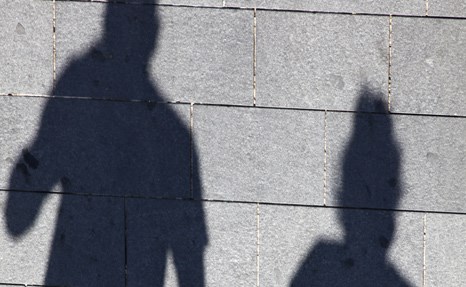
The Fate of a Mamzer
מאת: Gitit Paz
In an article in The Jewish Week, Gitit Paz, a young scholar in IDI's Human Rights and Judaism project, discusses the status of mamzer in Jewish law and in contemporary Israel.

The Haredi Draft: Equality Now?!
מאת: פרופ' ידידיה שטרן
On November 21 2013, Prof. Yedidia Z. Stern appeared before the Shaked Committee and argued that criminal sanctions are not recommended for reaching conscription goals. In an op-ed in Makor Rishon, he explains why.
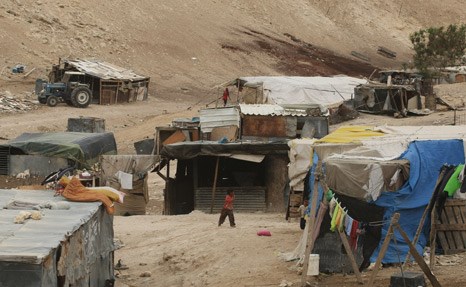
Regulating Bedouin Settlement: A Disengagement Plan for the Negev
מאת: Ronit Levine-Schnur
Ronit Levine-Schnur analyzes the Bill to Regulate Bedouin Settlement in the Negev 5773–2013, warns that it seems to be motivated by an exaggerated fear of a Bedouin takeover of the Negev, and offers an alternative approach.

On the Need for Civil Unions in Israel
מאת: Benjamin (Benny) Lau
Rabbi Dr. Benjamin (Benny) Lau expresses support for the proposed civil union bill, which would allow couples who do not want to marry in a religious service to form a legally recognized union and be eligible for the benefits and responsibilities associated with marriage.

Civil Unions in Israel as a Democratic Compromise
מאת: פרופ' שחר ליפשיץ
Prof. Shahar Lifshitz, author of an IDI policy paper proposing a spousal registry as a framework for civil unions in Israel, welcomes the reintroduction of this issue to the public agenda but expresses some concern about the formulation of the current bill.

Separating the Prosecution from the Police
Most criminal cases in Israel are prosecuted by the Israel Police rather than by the State Prosecutor. Prof. Mordechai Kremnitzer and Dr. Guy Lurie call for a division that would make the Police responsible for investigations and the State Prosecutor responsible for indictments and trials.

The Contributors to the State Bill: Contributing to the Jewish-Arab Divide
Prof. Mordechai Kremnitzer and Att. Talya Steiner warn that the veteran's benefit bill, which is intended to extend benefits to those who have contributed to the State, discriminates against Israel's Arab citizens, who are exempt from military service in Israel.

What Can We Learn about Israeli Policy Making from the Supreme Court's Ruling on the Anti-Infiltration Law?
מאת: ד"ר טליה שטיינר
Attorney Talya Steiner warns that a Supreme Court's judgment that struck down an amendment of Israel's anti-infiltration law as unconstitutional points to significant flaws in Israel's process of policy-making.

A Professional Assessment of the Governance Bills
מאת: פרופ' גדעון רהט
A professional assessment of proposed changes to Basic Law: The Government and the Election Bill, which was submitted by Prof. Gideon Rahat to MK David Rotem, Chairman of the Knesset Constitution, Law and Justice Committee.

The Israeli Economy: Has the Melting Pot Succeeded?
מאת: Momi Dahan
A study conducted by IDI Senior Fellow Prof. Momi Dahan that reveals that there has been a continuous narrowing of income gaps between Israelis of European-American origins and of Asian-African origins since the 1990s.

Quashing Legislation Mandating Lengthy Detention of Asylum-Seekers
Dr. Reuven (Ruvi) Ziegler shares observations on the decision of the Israeli Supreme Court that an amendment of the Prevention of Infiltration Law that mandated lengthy detention of asylum seekers is unconstitutional.

An Anti-Zionist Law
מאת: ד"ר עמיר פוקס
In an op-ed in Haaretz, IDI Researcher Attorney Amir Fuchs warns that the proposed Basic Law: Israel as the Nation State of the Jewish People is not only anti-democratic but also undermines the foundations of Zionism.
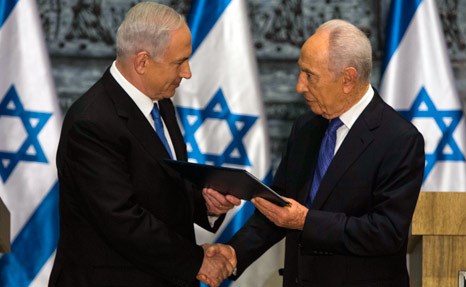
Coalition Building in Israel: A Guide for the Perplexed
מאת: פרופ' עופר קניג
In an article specially written for the IDI website, Dr. Ofer Kenig explains the basic principles of the process of coalition building, sharing facts, figures, and comparative data.
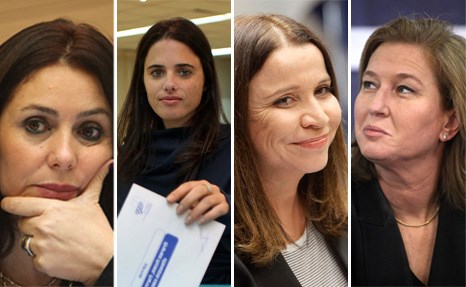
Women’s Representation in the Knesset: Is it Sufficient?
מאת: פרופ' עופר קניג
The 19th Knesset is expected to have a record number of women MKs. Nonetheless, the percentage of women in the Knesset is lower than that found in the parliaments of most other established democracies. IDI researcher Dr. Ofer Kenig provides an overview of the situation.
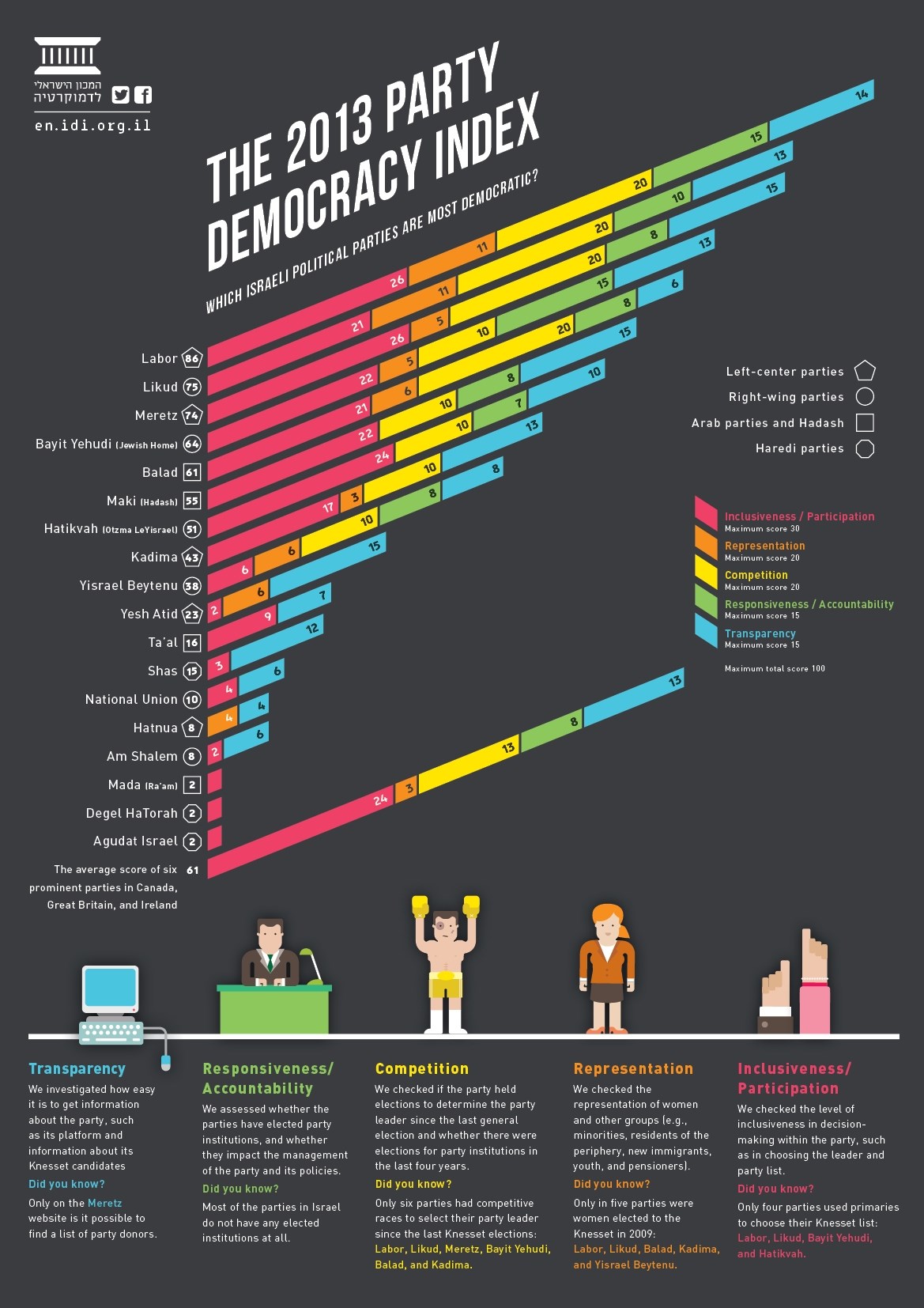
The Party Democracy Index 2013
מאת: פרופ' גדעון רהט, ד"ר אסף שפירא, Michael Philippov
The findings of the Party Democracy Index, a new tool designed to evaluate the level of democracy within political parties, which was designed by IDI's political reform research team and released in advance of the 2013 Knesset elections.

The Emergence of New Political Parties in Israel
מאת: Parliament Staff
A survey of the creation of new political parties in Israel, from the state's founding through 1992, which was originally published in Hebrew in Parliament, IDI's online journal.

Call for Proposals: Regulating the Activities of Lobbyists in the Knesset
מאת: IDI Website
On April 4, 2012, IDI published an ad in the Hebrew Haaretz daily newspaper, appealing to the public for input that will inform the Institute's efforts to draft a proposal for regulating the activities of lobbyists in the Knesset.

The Tal Law: Judicial Responsibility at its Best
מאת: פרופ' מרדכי קרמניצר
Prof. Mordechai Kremnitzer presents a contrasting view to Prof. Yedidia Stern's assertion that the Israeli Supreme Court's ruling on the exemption of ultra-Orthodox men from military service in Israel is "<a href="http://en.idi.org.il/analysis/articles/judicial-activism-at-its-height">Judicial Activism at its Height</a>."
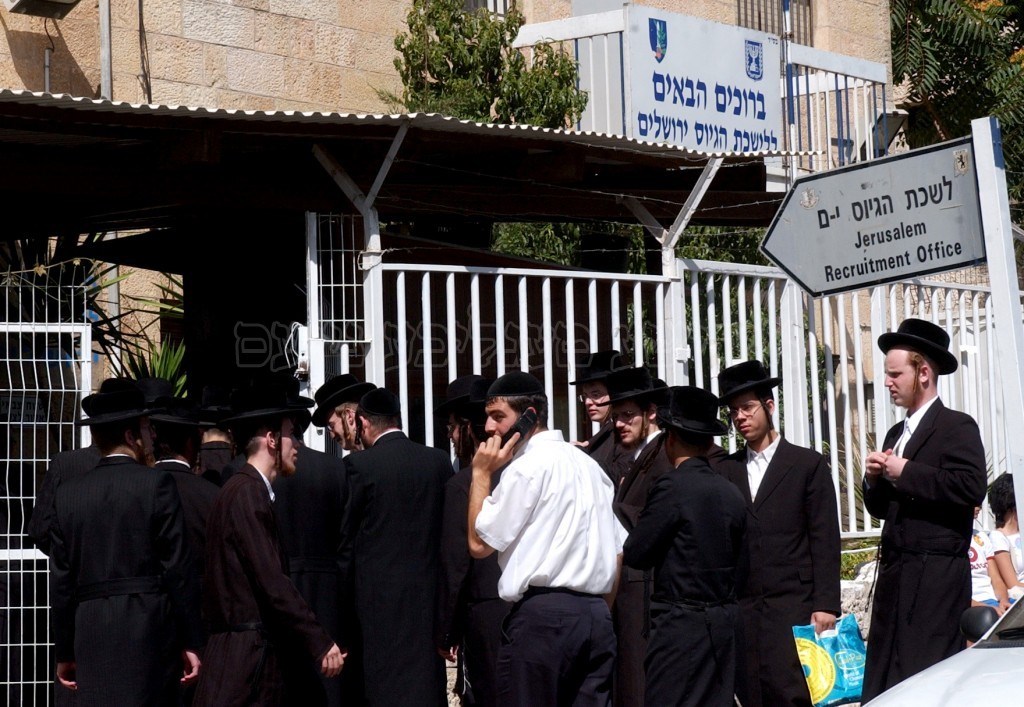
If They Give, They Will Receive
מאת: יאיר שלג
In this response to the Supreme Court ruling on the Tal Law, IDI Senior Researcher Yair Sheleg asserts that the exemption of ultra-Orthodox men from military service is an unparalleled <em>Hillul Hashem</em>—a desecration of the Name of God, and shares his views of a possible solution.

Make the Ultra-Orthodox Serve
מאת: יאיר שלג
IDI Vice President of Research Prof. Yedidia Stern sets the controversy over mass transportation on Shabbat and holidays in Israel in a broader context, and distinguished between the need for an Israeli-Jewish Shabbat (Sabbath) rather than a religious Shabbat.

Who Presides over the Knesset? On the Role of the Speaker of the Knesset
מאת: ד"ר דנה בלאנדר
IDI Researcher Dr. Dana Blander examines the statutory and customary roles of the Speaker of the Knesset and considers whether this is a symbolic job or one that has real influence on the operations of the Knesset. In addition, she compares the powers and functions of the Knesset Speaker with the corresponding roles in Great Britain and Australia.

Women in the 18th Knesset
מאת: פרופ' עופר קניג
IDI Researcher Dr. Ofer Kenig analyzes the results of the 2009 Israeli general election elections as they pertain to women's representation in the Knesset.

Summing Up the Knesset's Summer Session
מאת: פרופ' מרדכי קרמניצר
Prof. Mordechai Kremnitzer reflects on the productivity of the Knesset during the summer of 2008, suggesting that most of its members' energy was invested in dangerous, anti-democratic, disproportionate, offensive, and sometimes almost racist, legislation.
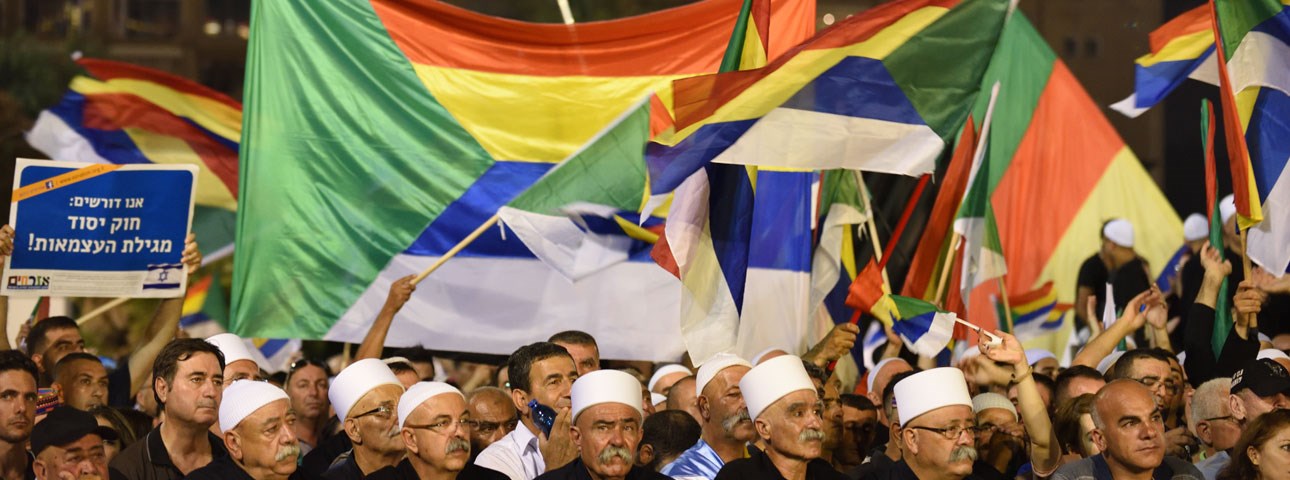
The Nation-State Law, One Year Later: What has Changed?
מאת: ד"ר עמיר פוקס
A year has passed since, The Basic Law: Israel the Nation-State of the Jewish People, was passed. What, if anything, has changed in that time?
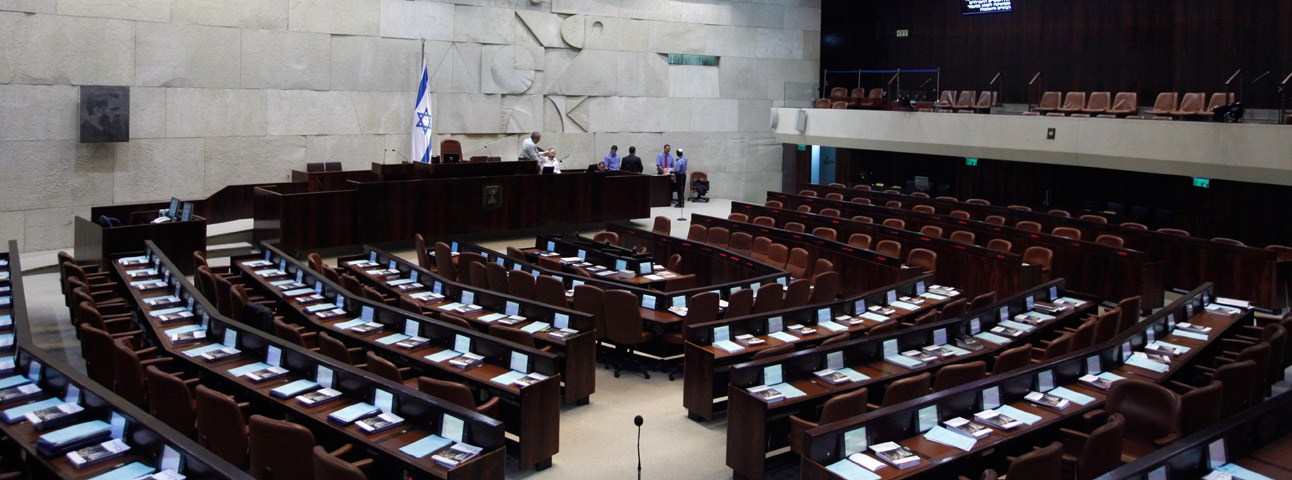
A Weak and Inefficient Knesset
מאת: ד"ר חן פרידברג
In a democracy, parliaments are supposed to not only pass laws but also engage in oversight; that is, to ensure that legislation is implemented and identify deficiencies in the government’s work.
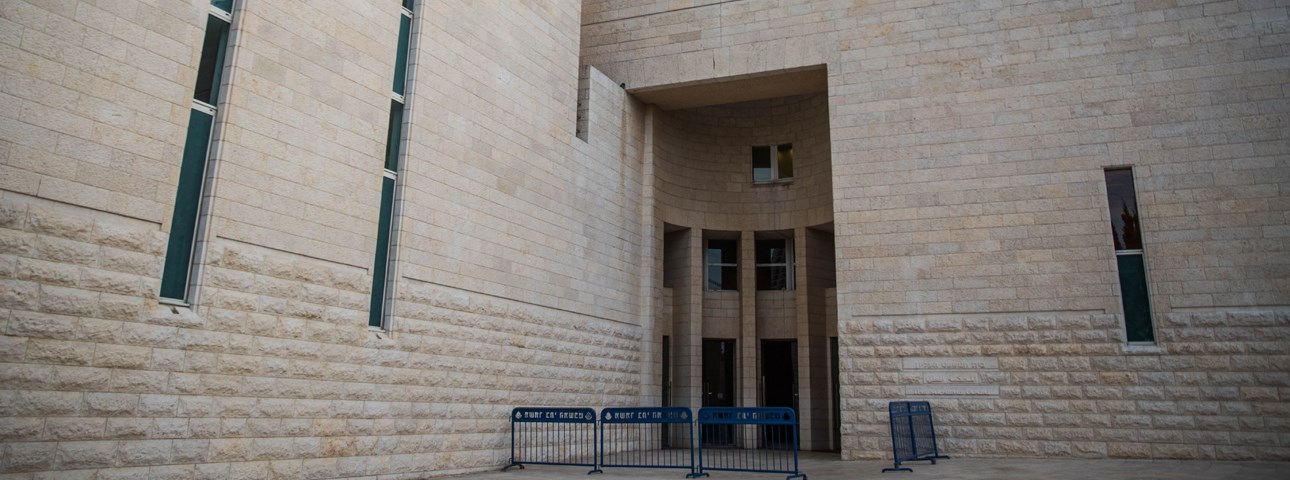
Q&A on the Override Clause
Israel Democracy Institute experts provide research, background and insight into WHY | WHO | HOW
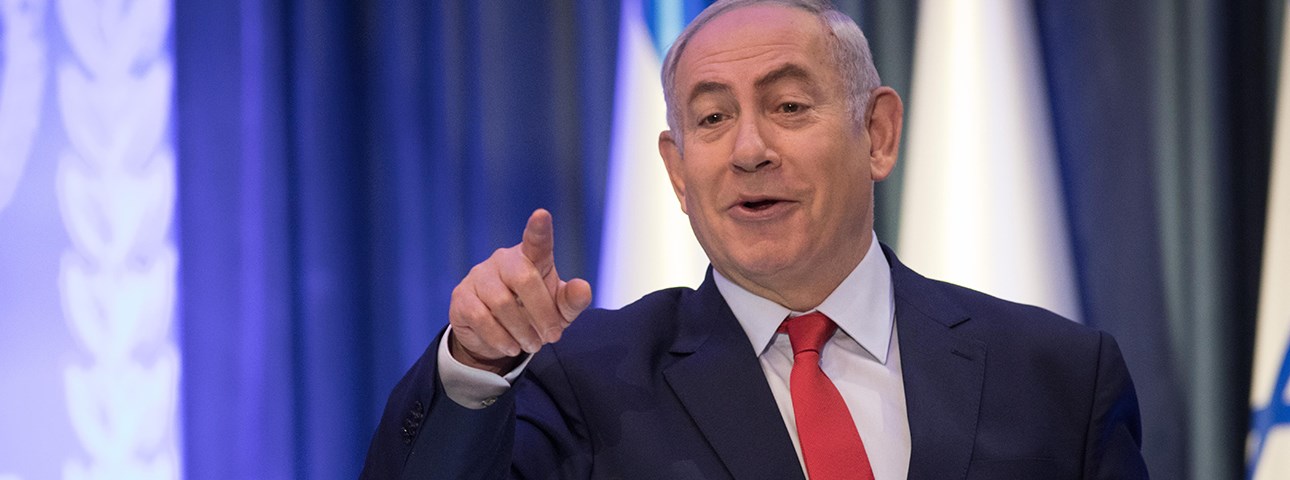
Proper Representation - Let's Play!
As the Knesset celebrates its 69th birthday on Tuesday, Jan. 30, here is a chance to see how you score on knowledge of Israel's parliament. What did Israel's lawmakers do before joining the Knesset? What did they do after leaving? what are the benchmark requirement to becoming an MK? How many are currently serving their first term? Let's play!

The Israeli Facebook bill is Unenforceable
The Facebook Bill, which would allow the government to use administrative means to remove content from social networking sites, would both set a precedent and be ineffective

Where has the Oppositon gone?
מאת: ד"ר חן פרידברג
The danger of a weak opposition should not be underestimated. This situation harms most of all those populations who are not represented in government, and even harms the functioning of the government itself, which is not subjected to real criticism
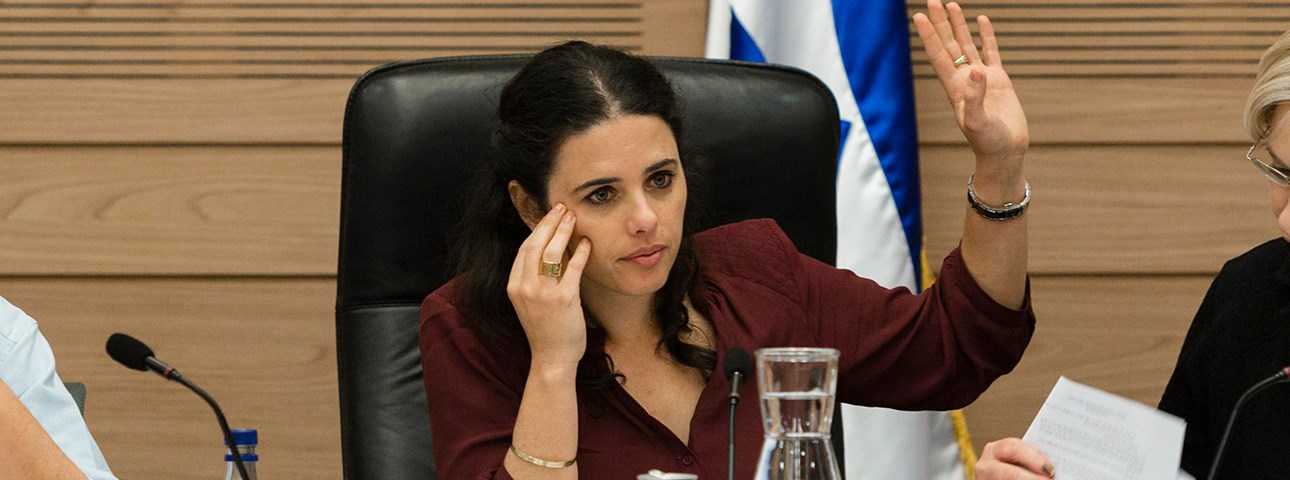
Behind the Scenes of Israel's Ministerial Committee For Legislation
There are ways to transform this powerful committee into one that combines politics with professionalism, instead of being one more arena for the settling of political scores.

Harmful Revolution: The Nation-State Bill’s Assault on Equality
מאת: פרופ' ידידיה שטרן
Israelis must unite around a balanced arrangement that asserts that Israel is the nation-state of the Jewish people that guarantees equality for all its citizens.
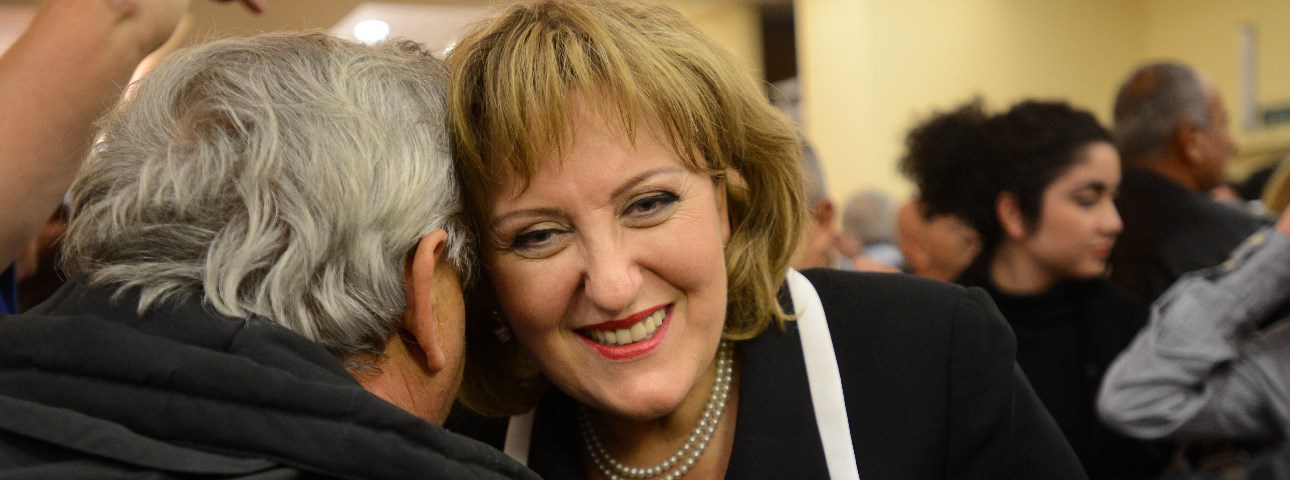
Lessons from the Yisrael Beytenu Affair
מאת: ד"ר אסף שפירא
Regulation, transparency and enforcement capabilities are crucial steps for lobbying to work.
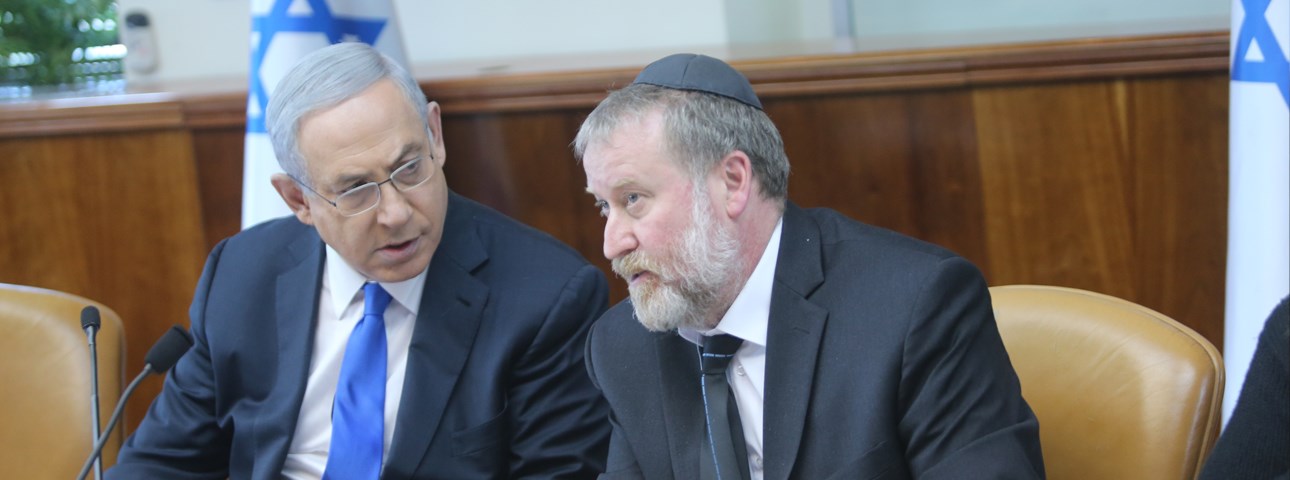
A Prime Minister Under Criminal Investigation
A summary of where the law stands regarding alleged wrong doing by the premier, as well as timely suggestions for reform, are in order.

There is Still Hope for Knesset Reform
מאת: יוחנן פלסנר
When legislators exhibit such disdain for the country’s legislative body, is it any wonder the average citizen does too?

Improving the Way the Knesset Functions
מאת: ד"ר חן פרידברג
A set of reforms must be implemented so that Knesset members' supervisory ability over the government will be enhanced.

Increasing the Size of the Israeli Knesset
מאת: פרופ' עופר קניג
The Knesset is one of the smallest parliaments in the world, in terms of legislators per capita. As a result, the effectiveness of the Israeli parliament is diminished, especially regarding the important task of overseeing the executive.

'Yes' to a Nation-State, 'No' to a Nationalistic State!
Leaders of the Israel Democracy Institute call for alternative proposal that would place nation-state of the Jewish people on equal footing with democratic obligation to equality for all Israeli citizens.
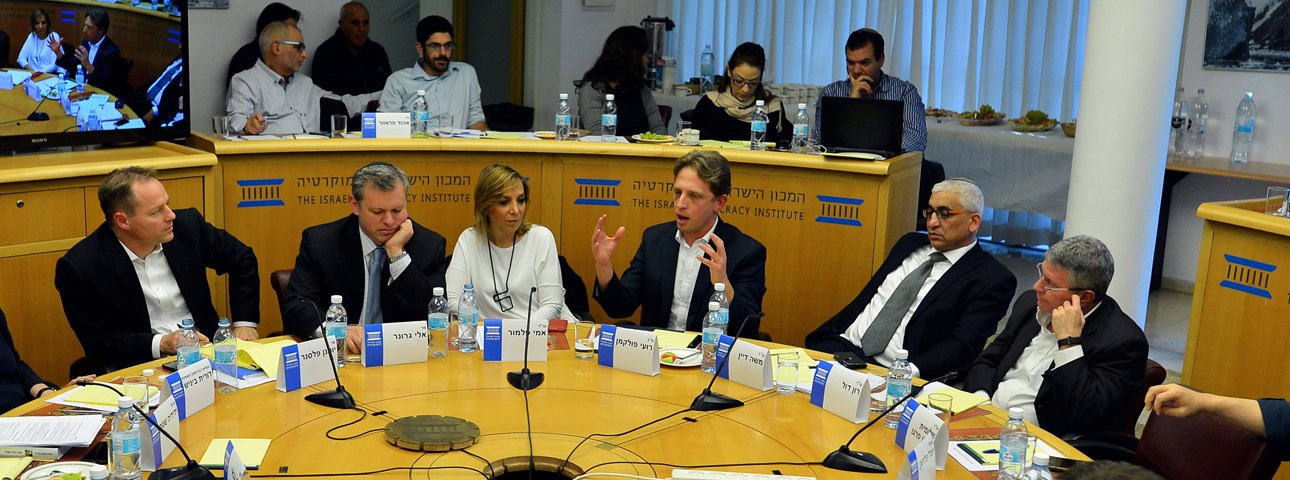
Civil Service Commissioner: For Country or Government?
מאת: Motty Shapira
The civil service commissioner holds an important public position, and should not be relegated to serving as a rubber stamp for the government.

The Israel Democracy Institute criticizes decision to reduce search committees for public service employees from 5 to 3 and says discussions of allowing additional political appointees ‘will harm the professional ethos of the public service’
IDI President Yohanan Plesner said of this latest development: “While one hand in the government is taking significant steps to diminish regulation and improve human resources in the public service, the other hand is harming these efforts.

What Do Parliamentary Aides Think of the Work of Members Of Knesset?
Researchers surveyed aides in 40 Knesset offices. Of those, 92% of aides says they think MKs do not come prepared for Knesset committee meetings and that the Knesset is not succeeding in properly supervising the government (95%).
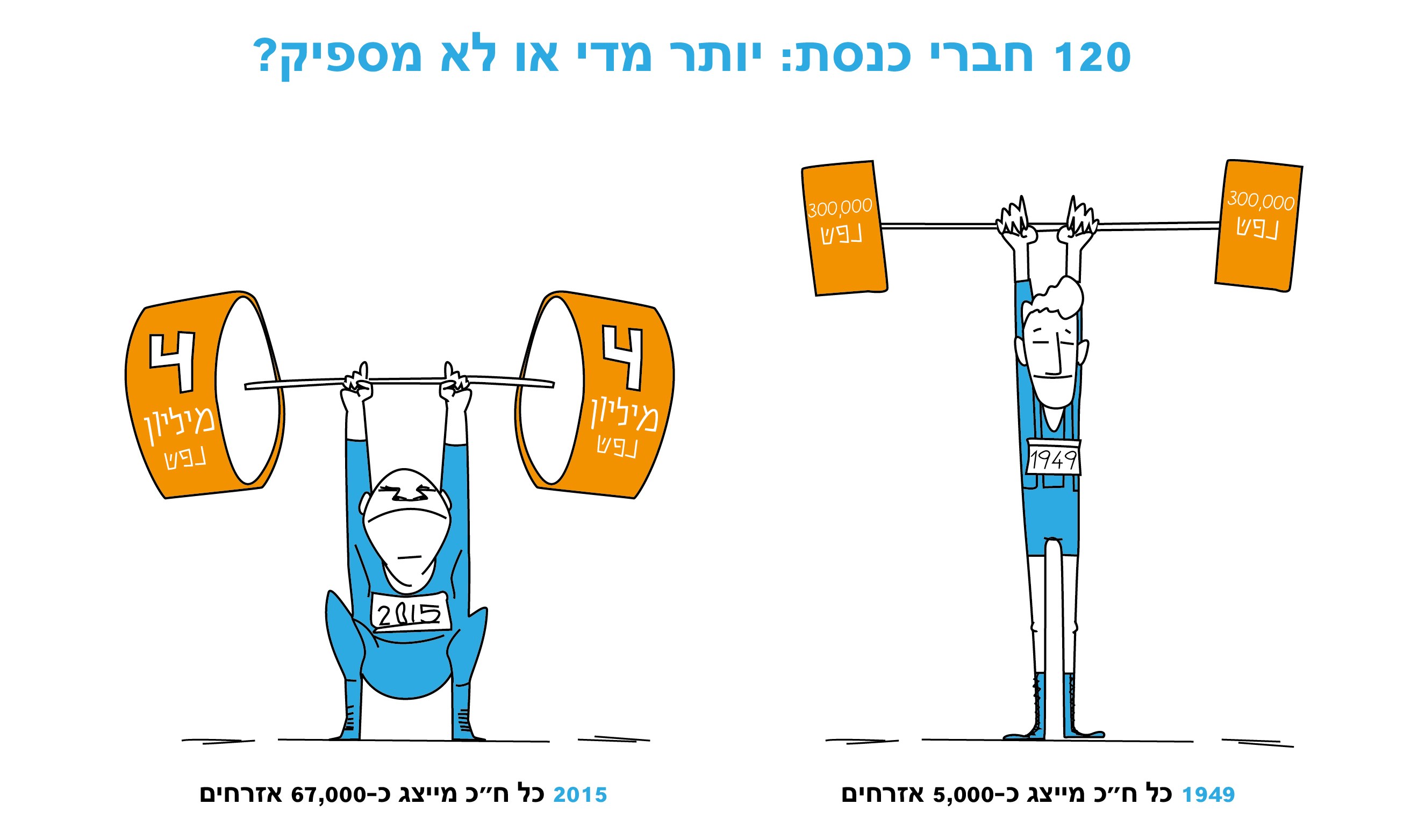
Happy Birthday, Knesset!
מאת: פרופ' עופר קניג
As the Knesset, Israel’s legislature, marks its birthday, IDI takes the opportunity to consider two aspects about it: its members’ social composition and its relative size.

Israel Democracy Institute Scholars on the Proposal to Enable Religious Courts to Arbitrate on Civil Matters: ‘A Good and Balanced Proposal’
Ahead of today’s vote on a bill that would enable religious courts to conduct arbitration with the agreement of both parties, similar to the arbitration that takes place in other frameworks, a policy statement was sent to the Ministerial Committee on Legislation by Israel Democracy Institute’s Dr. Benny Porat.

IDI President Responds to Advancement of V-15 Bill
Today, the V-15 bill advanced to the Knesset, with a vote expected as early as later this week.

